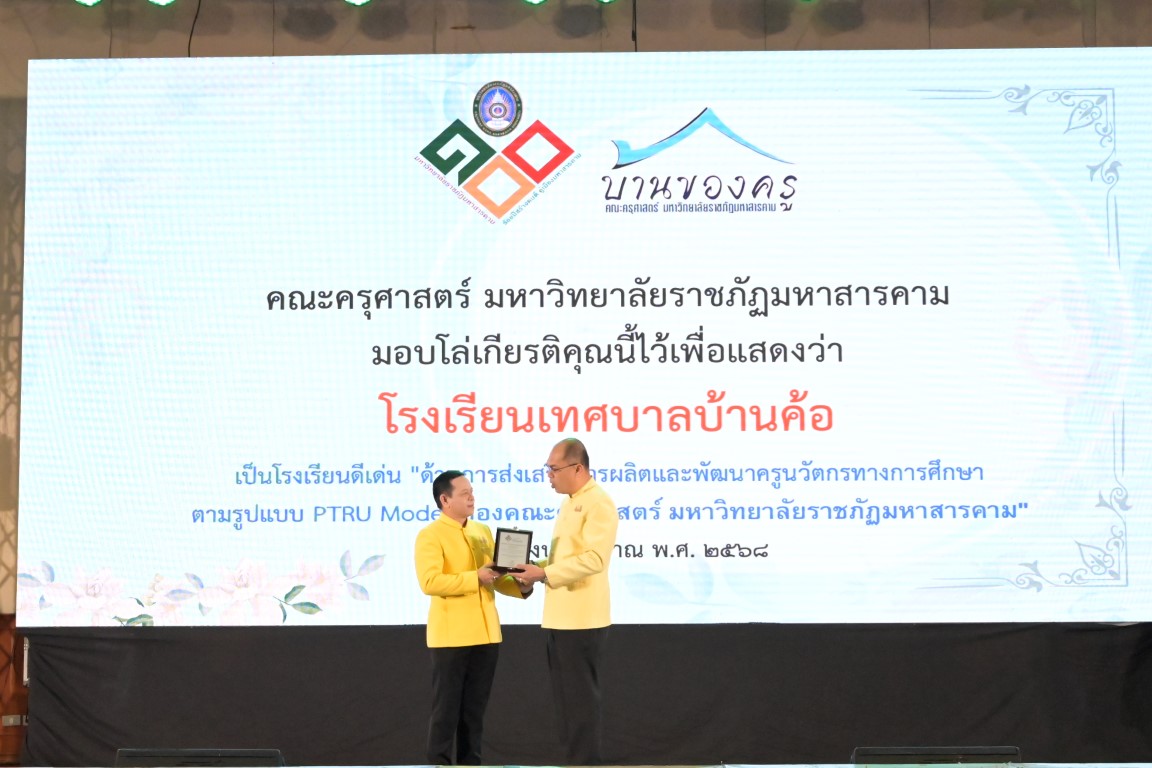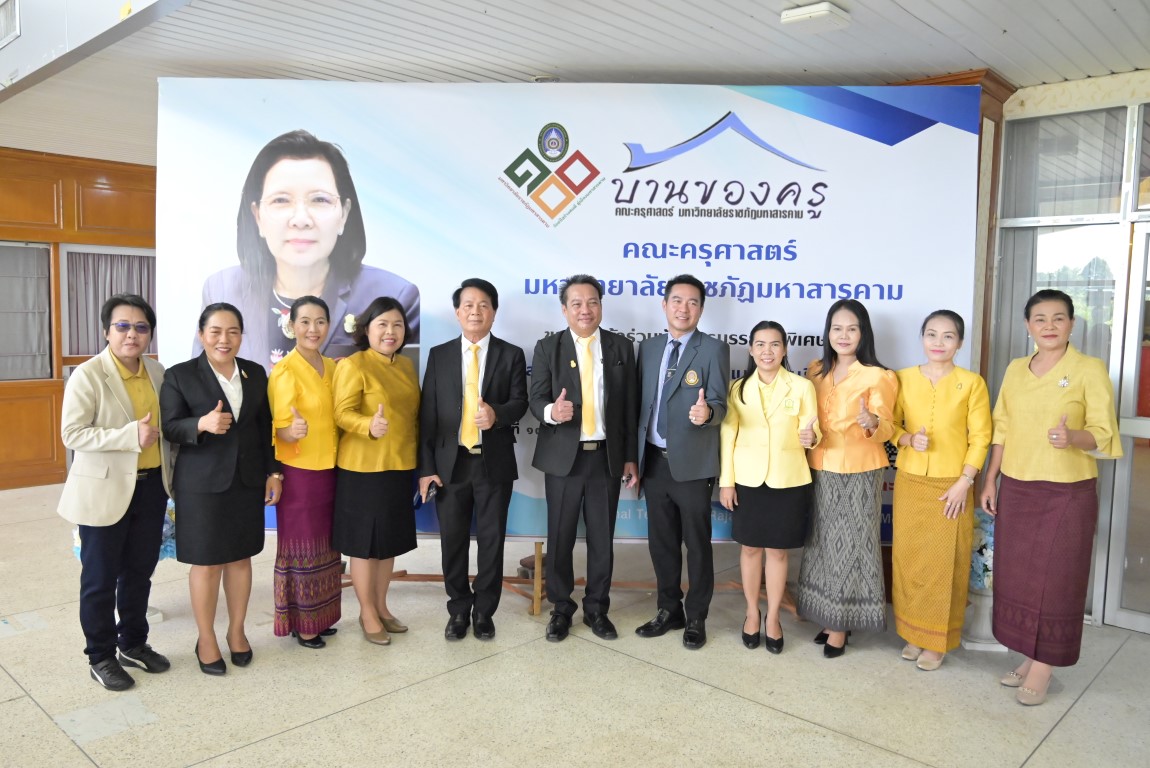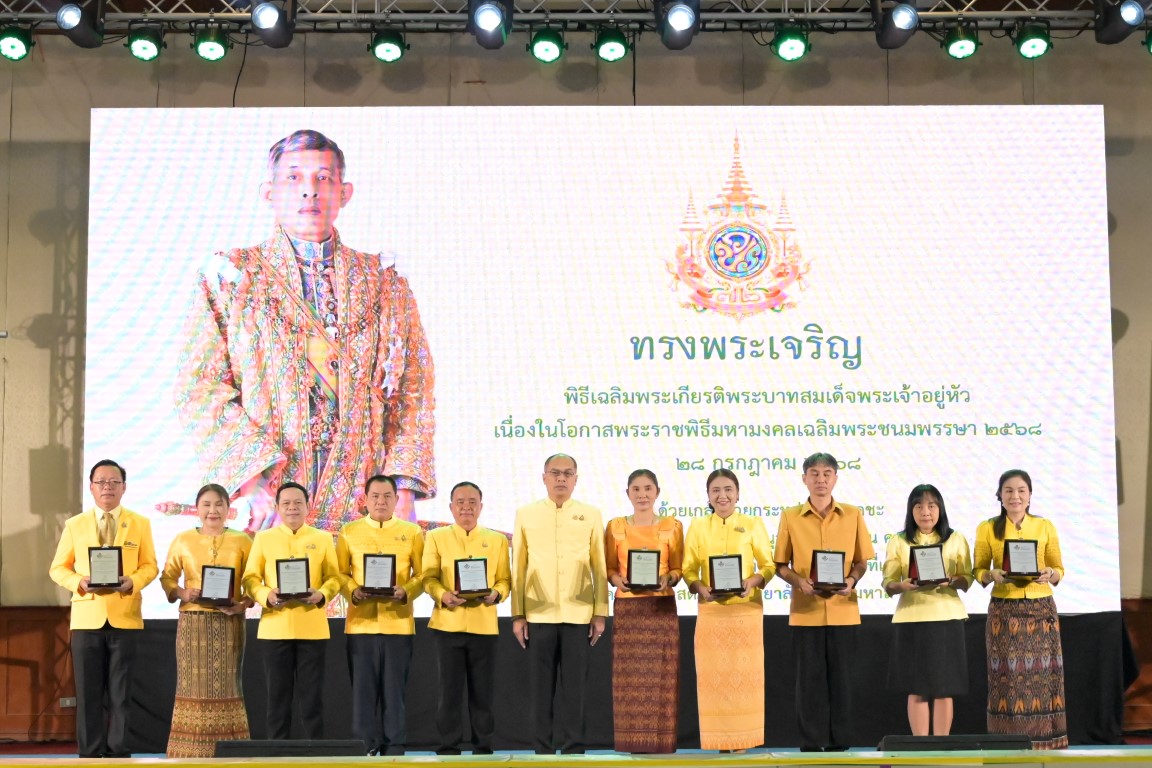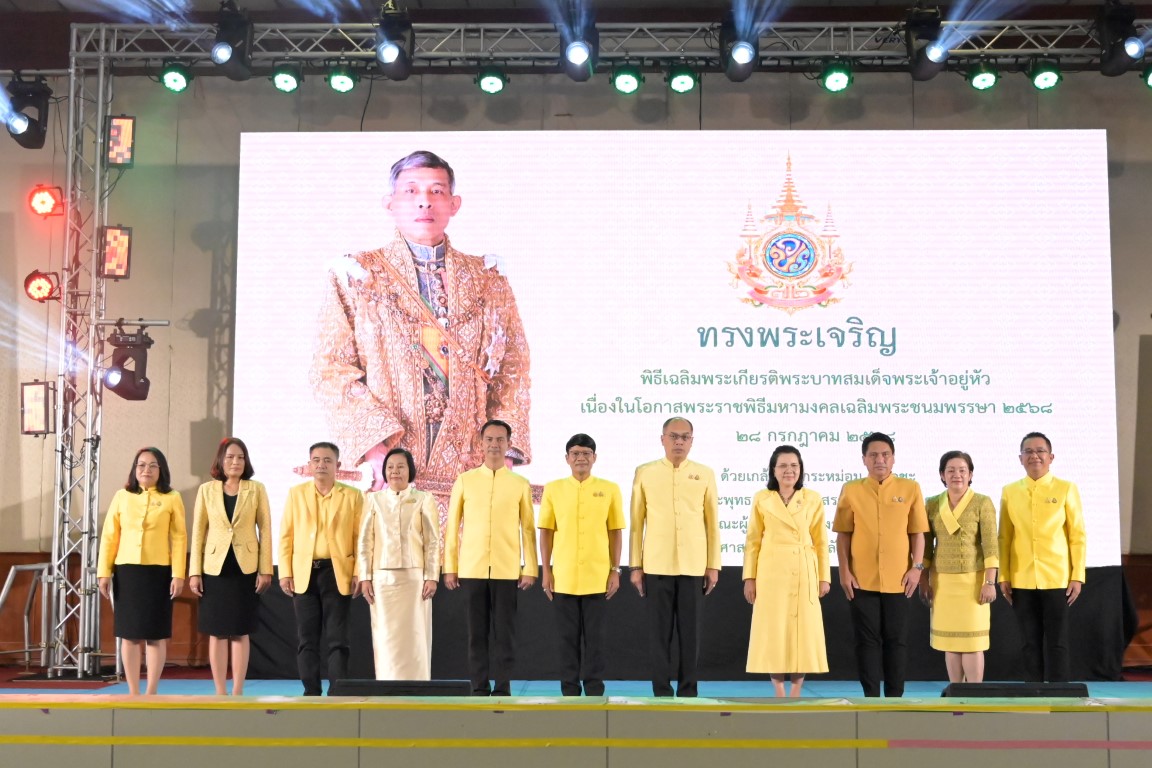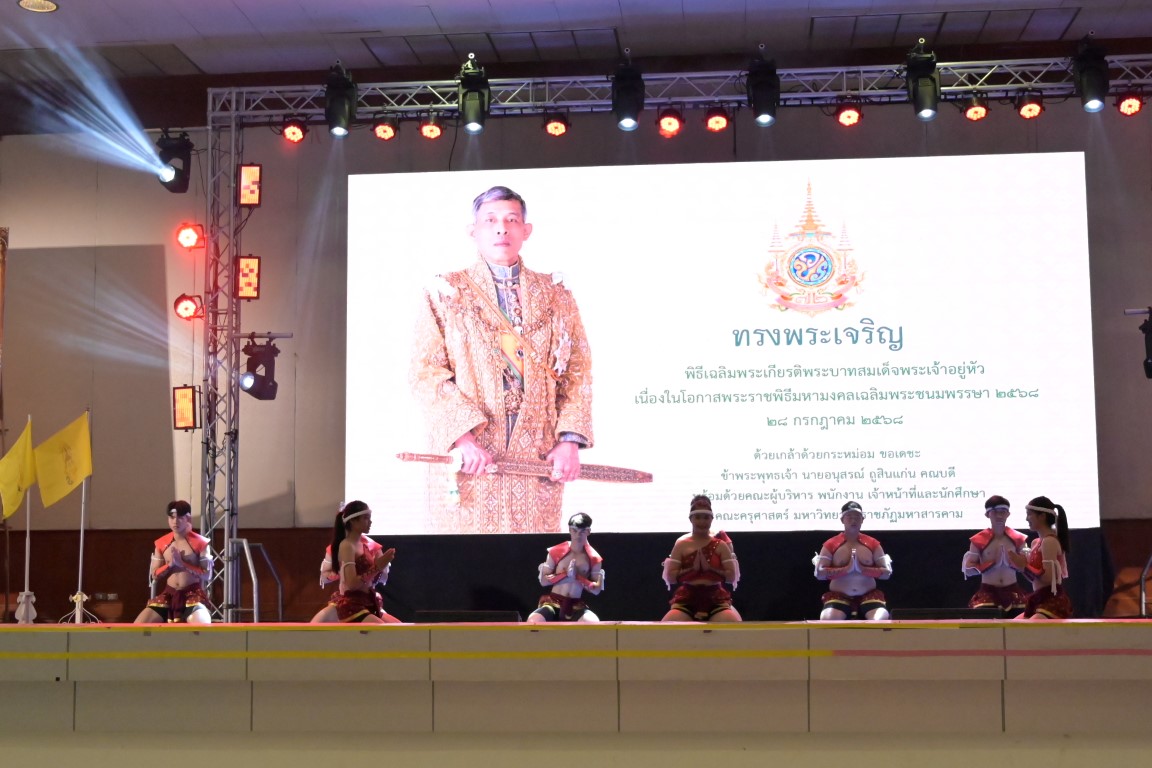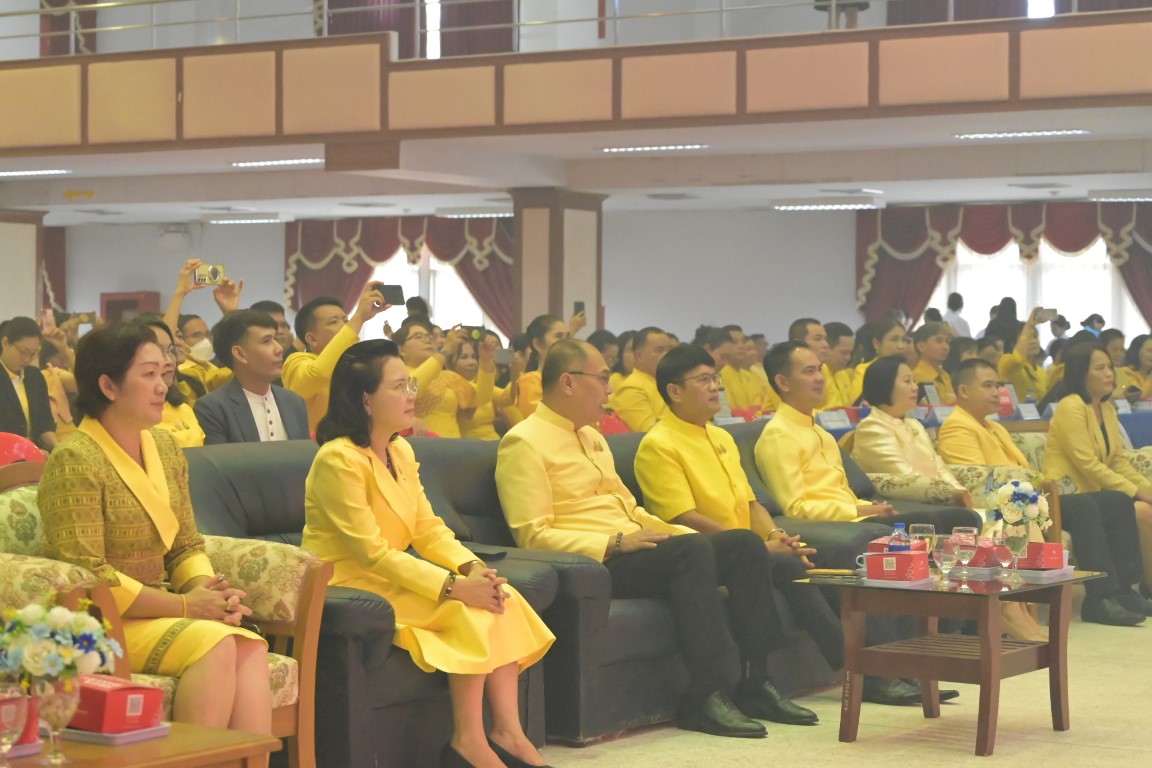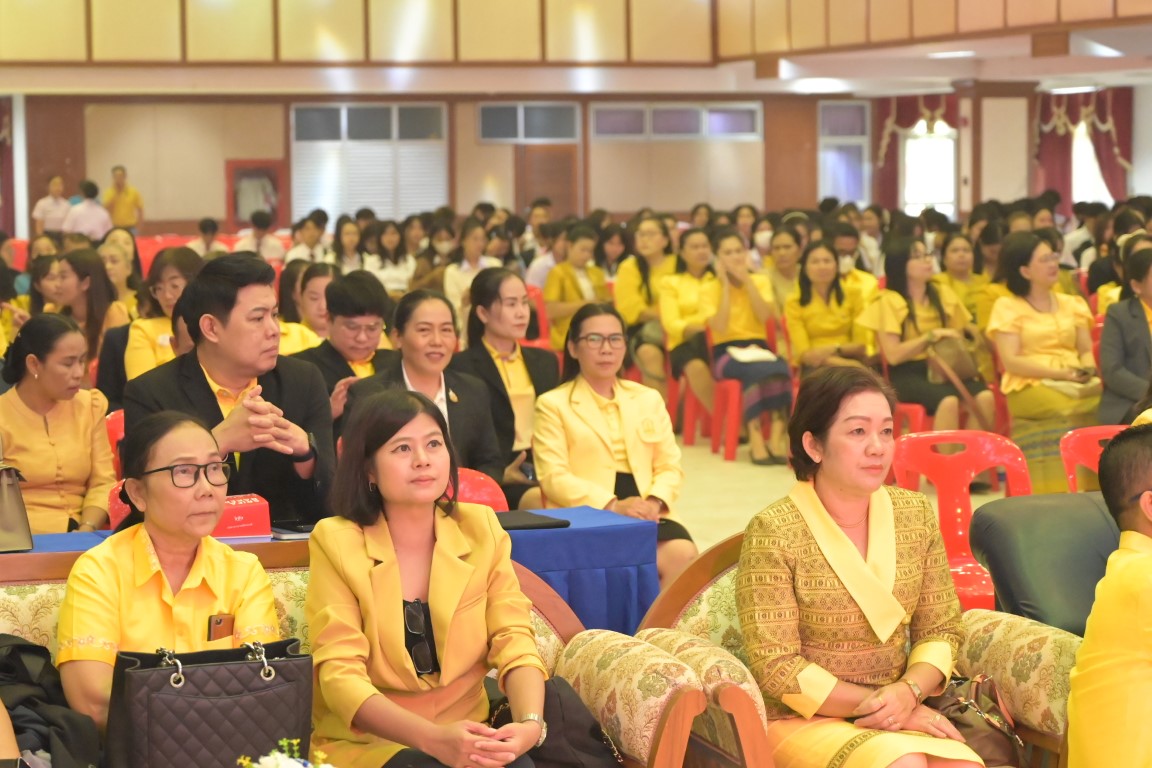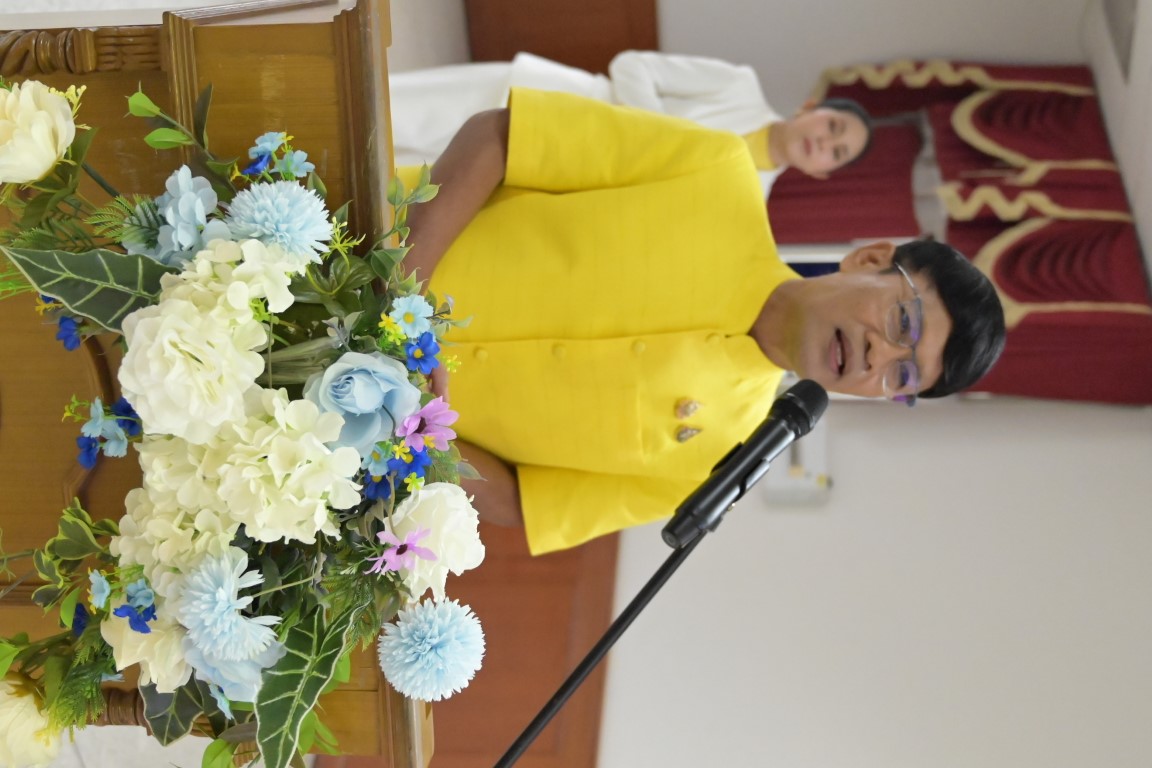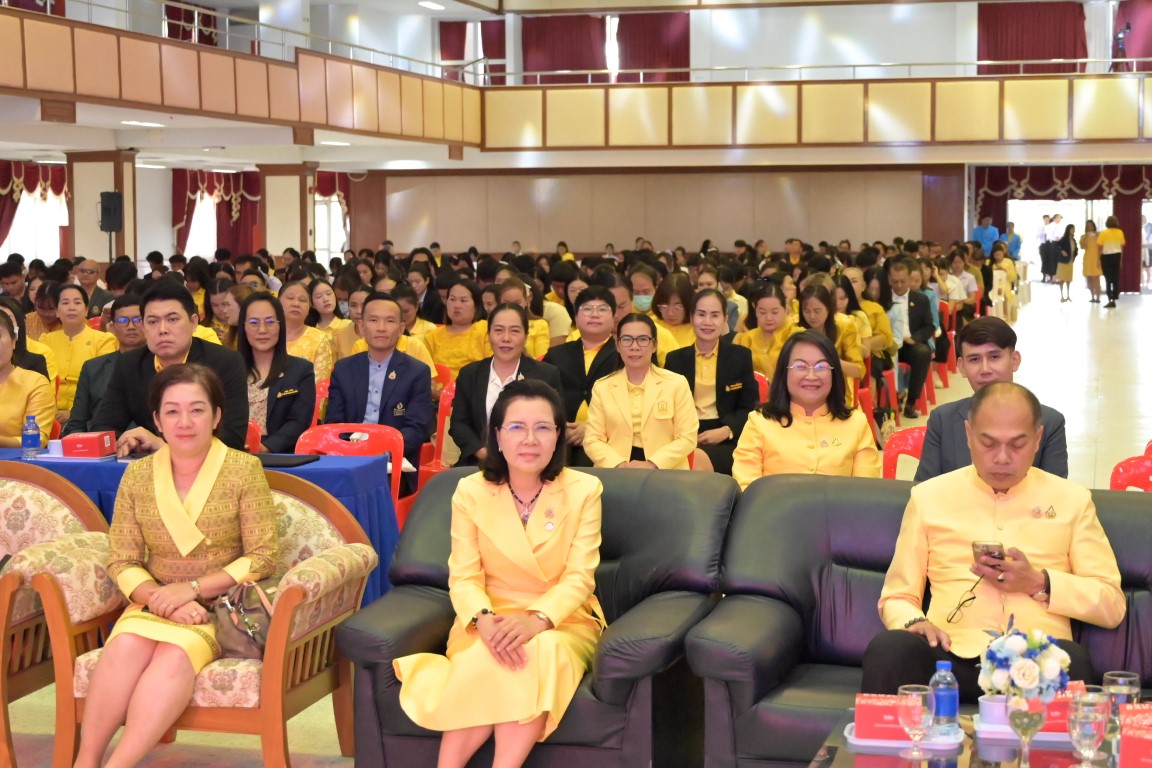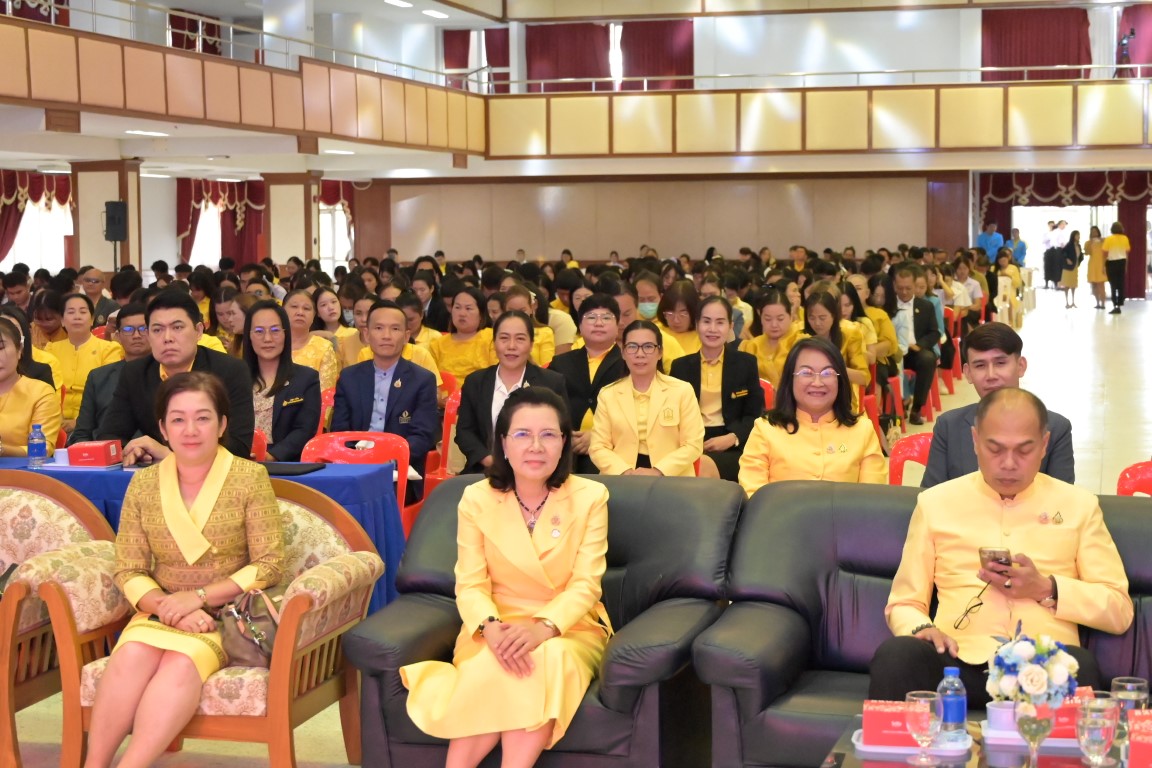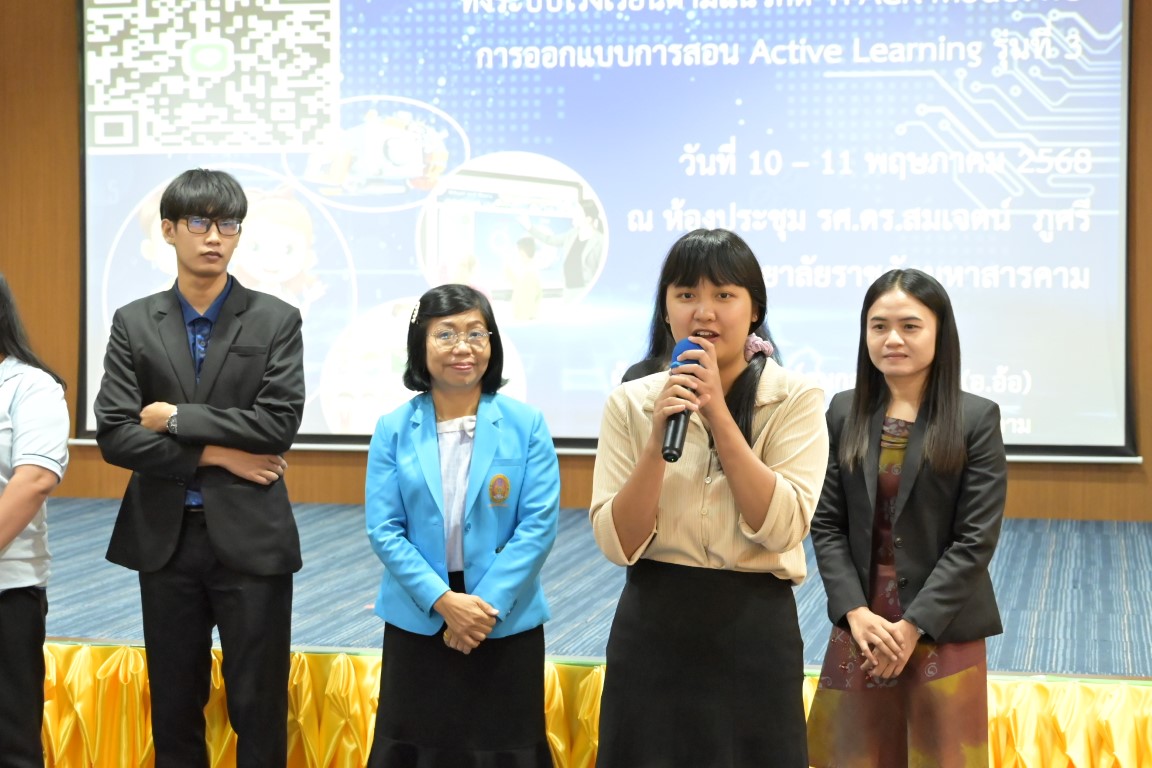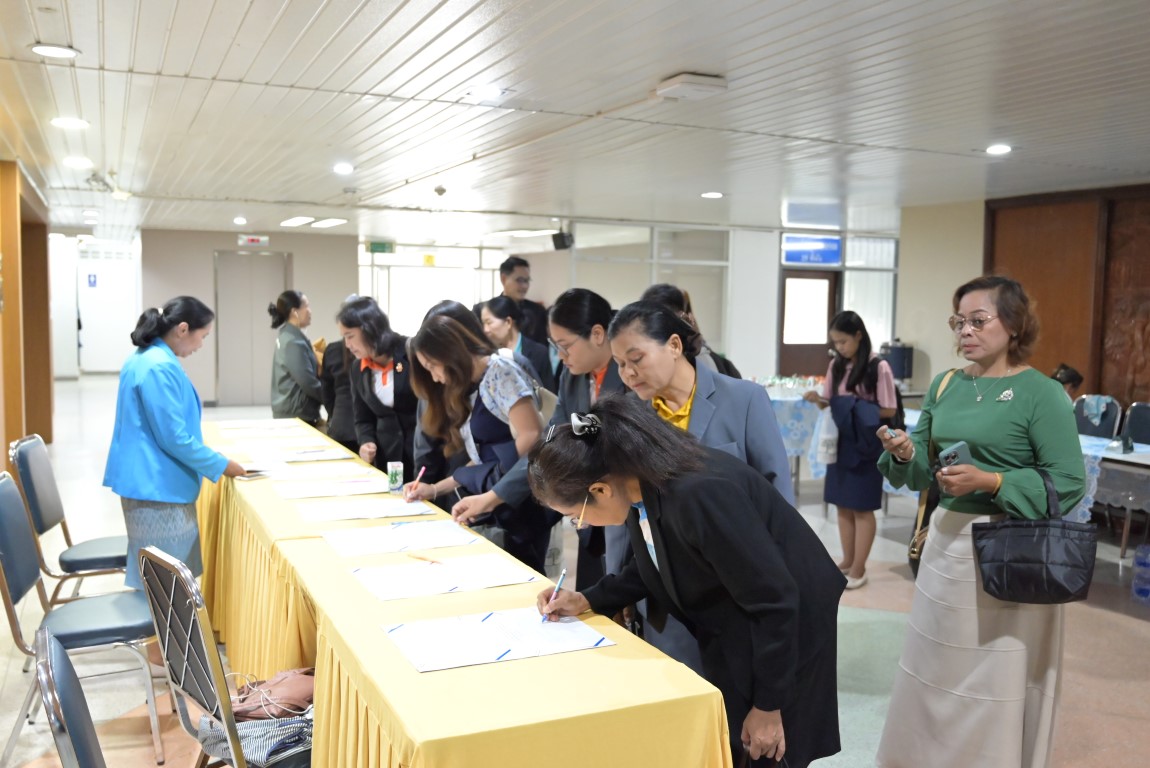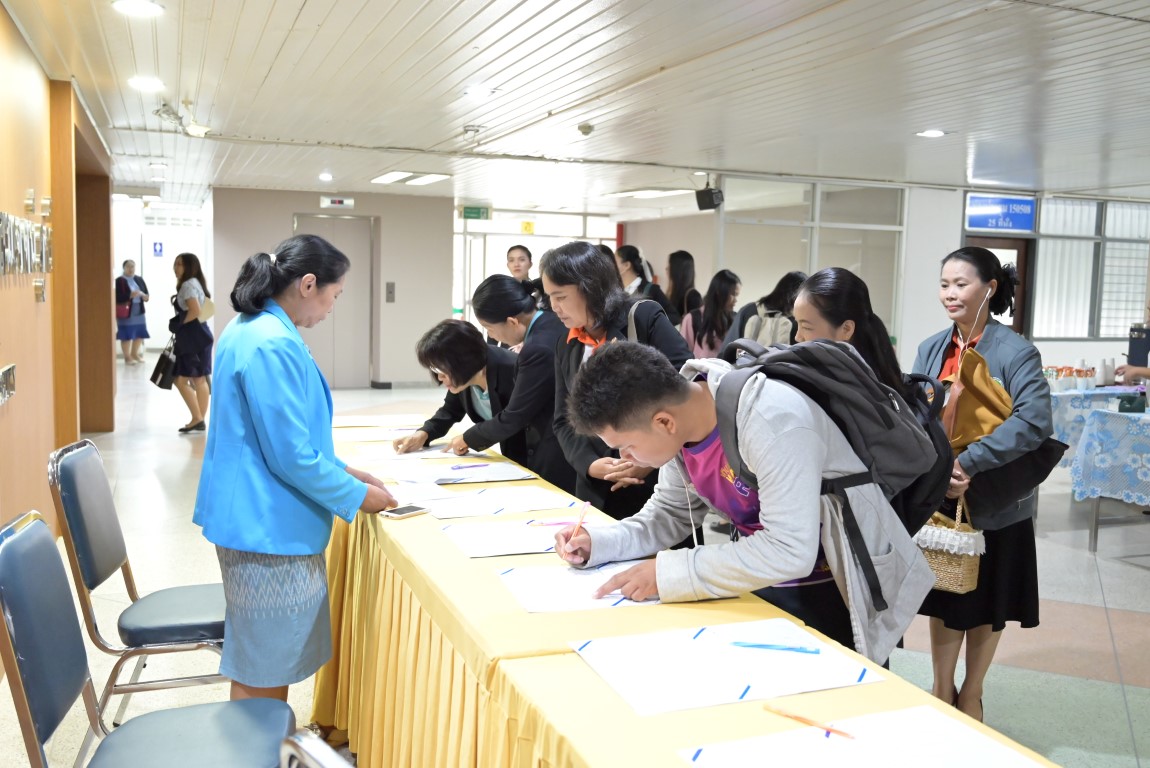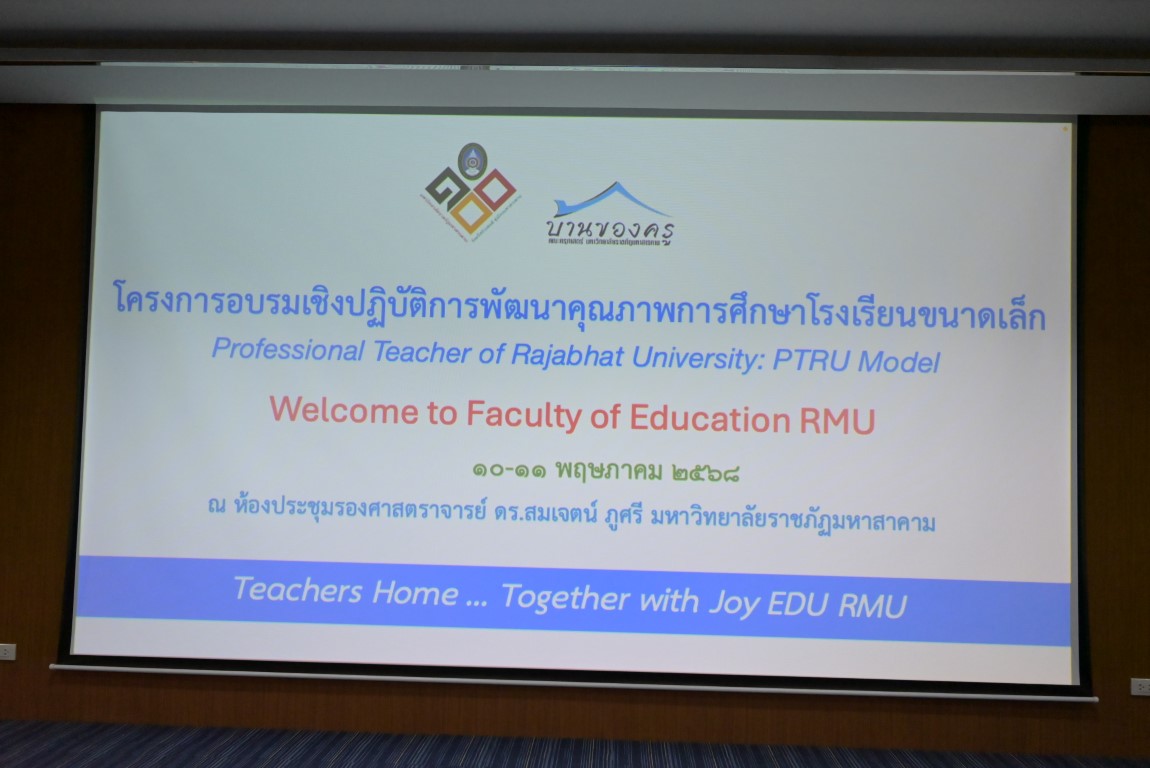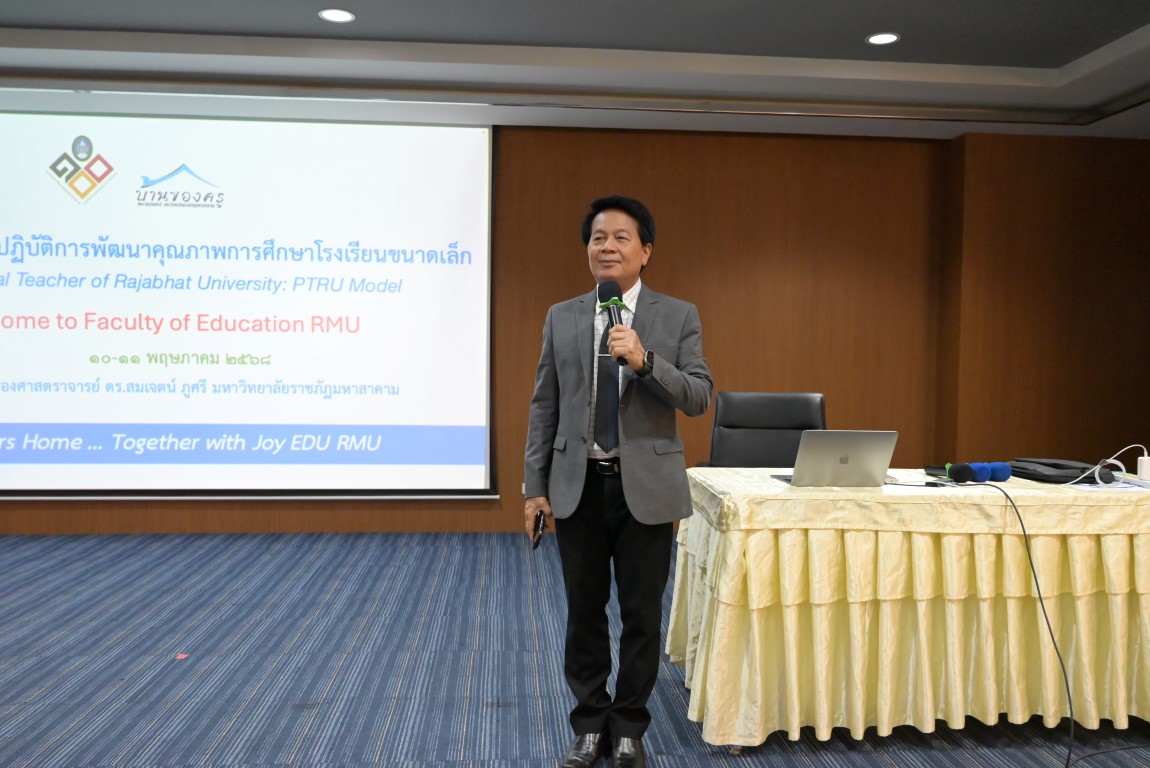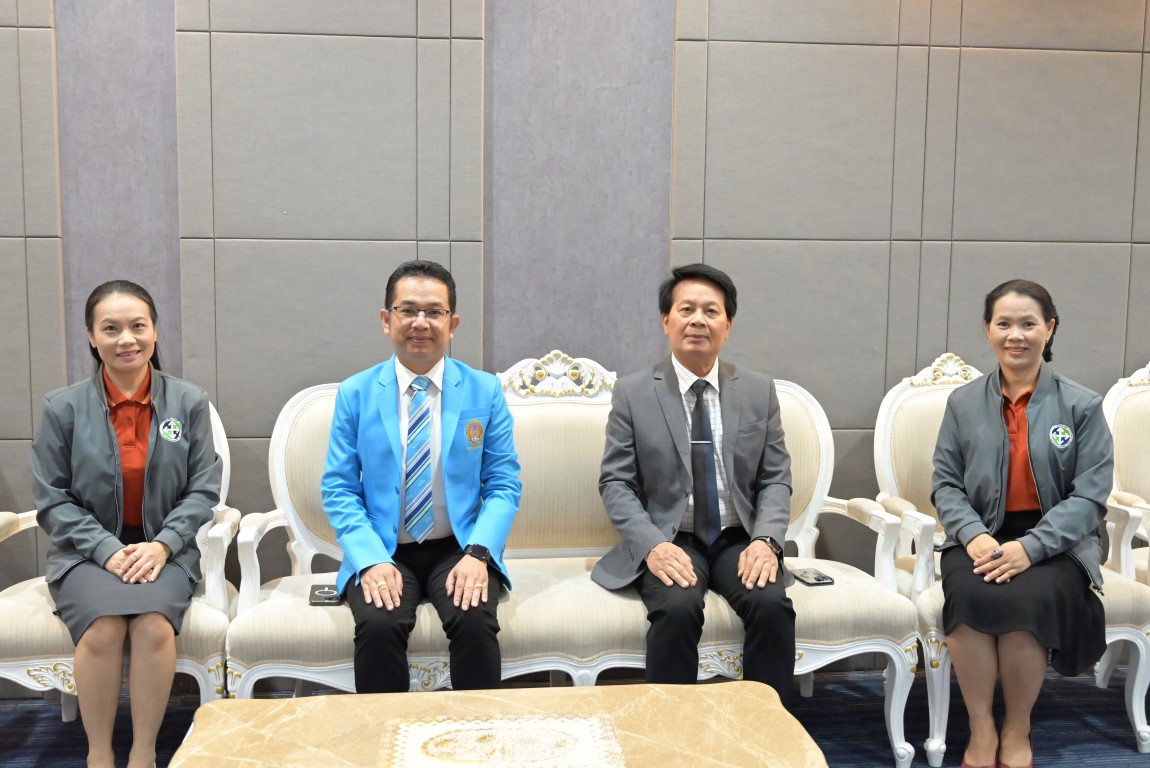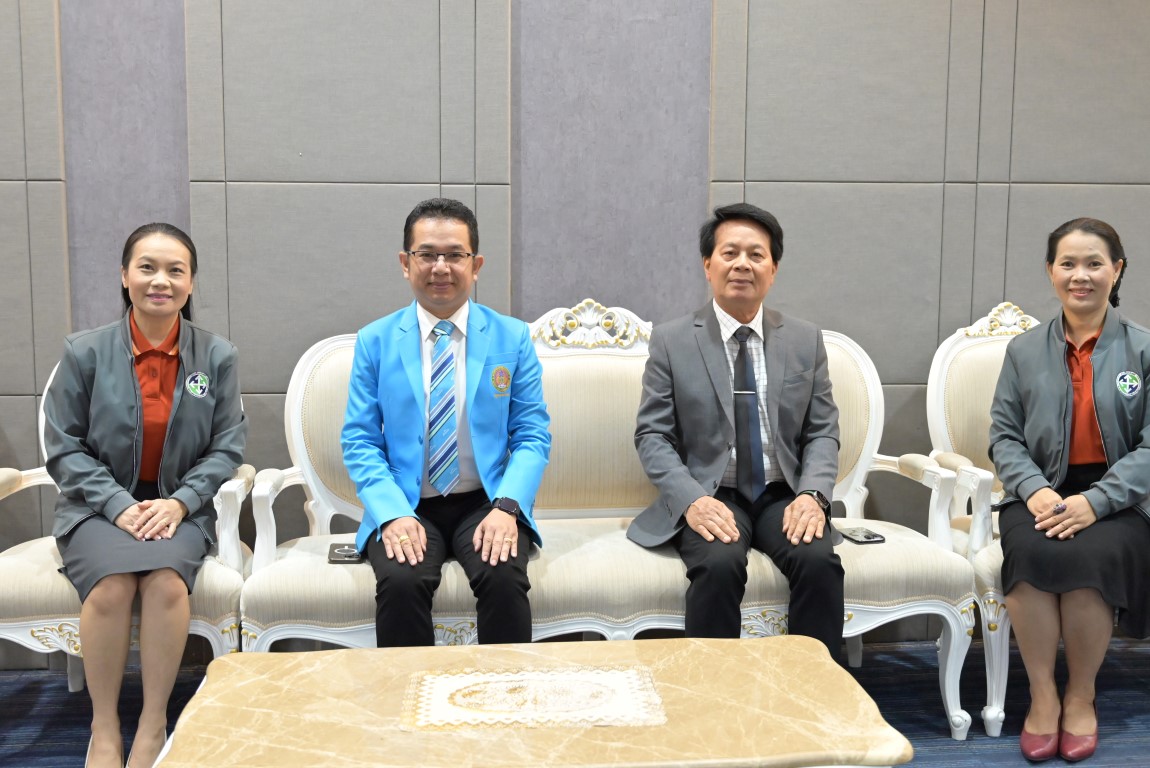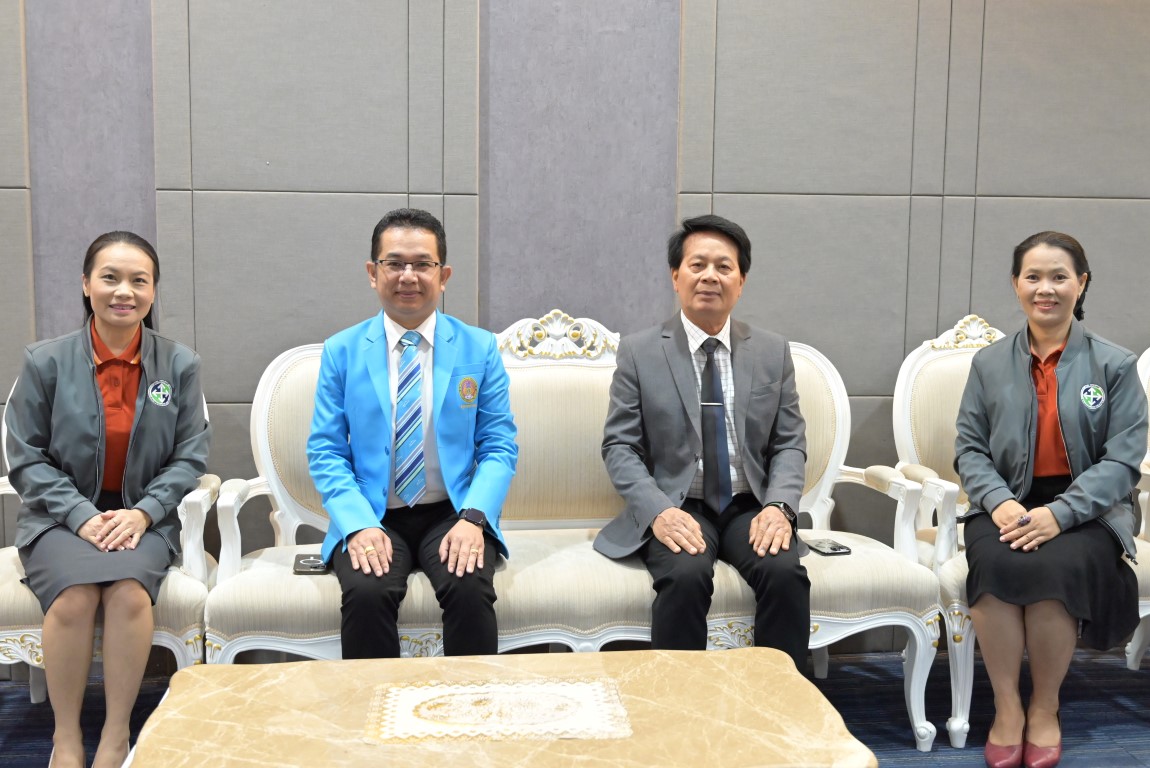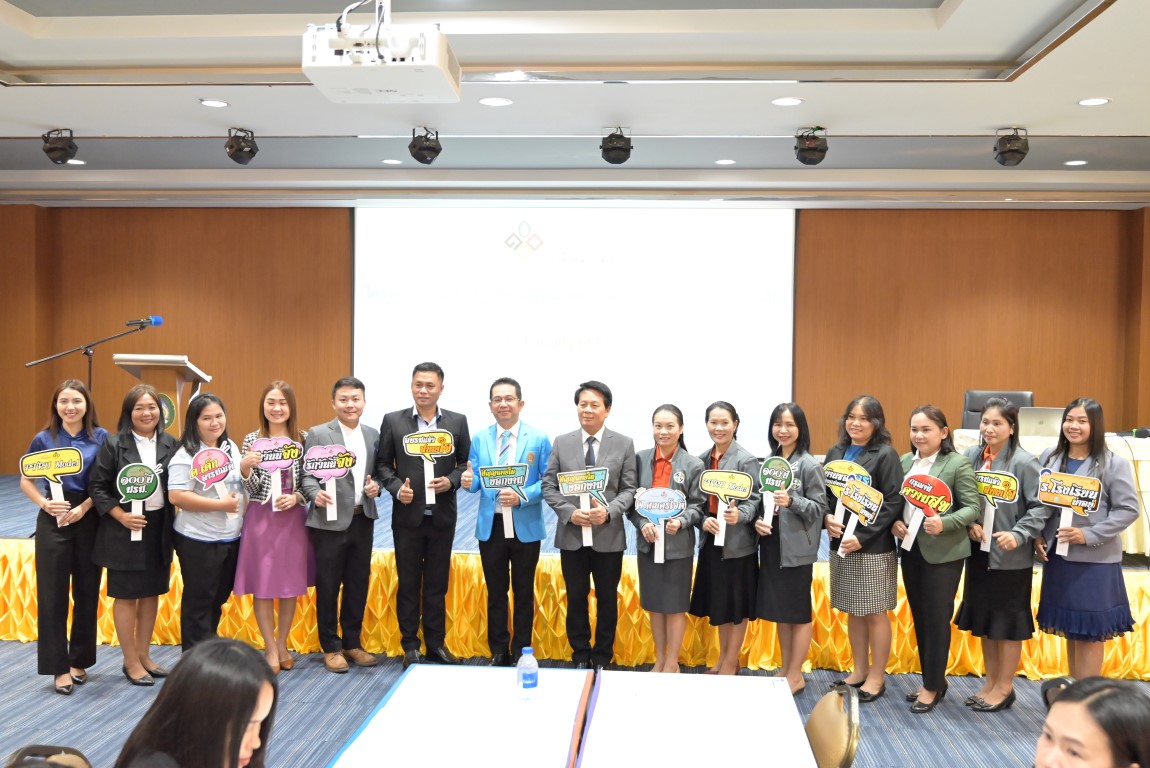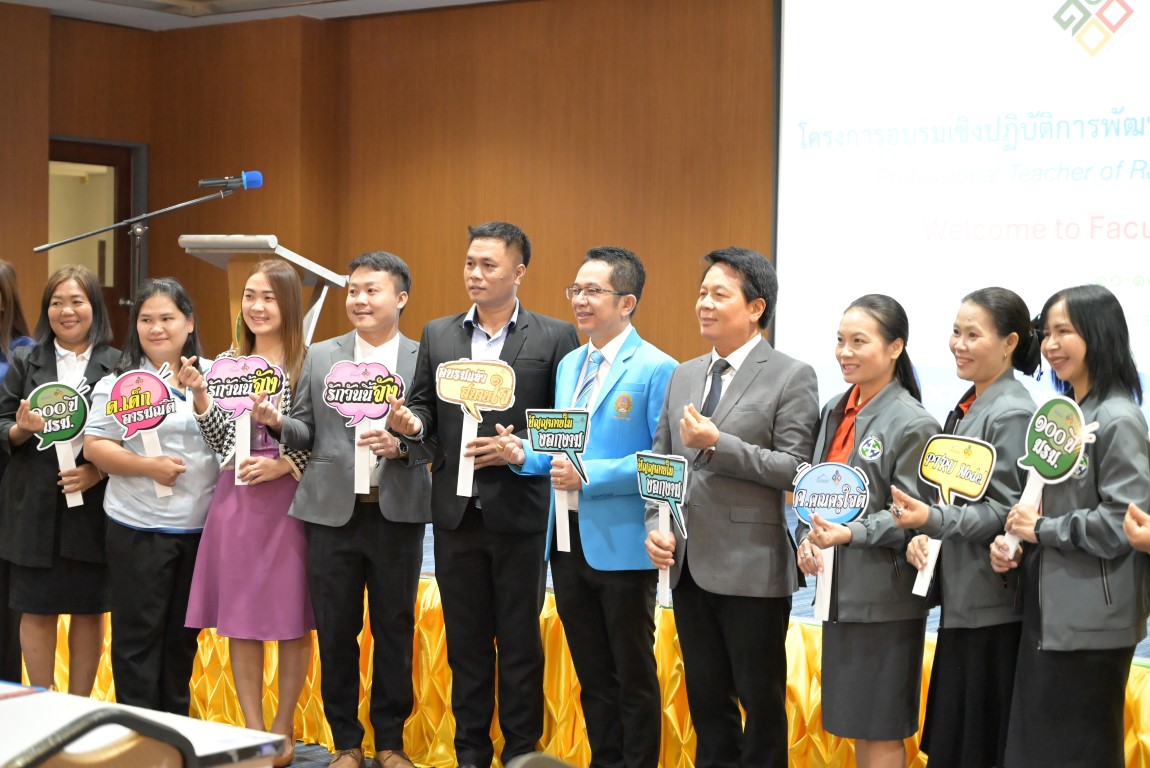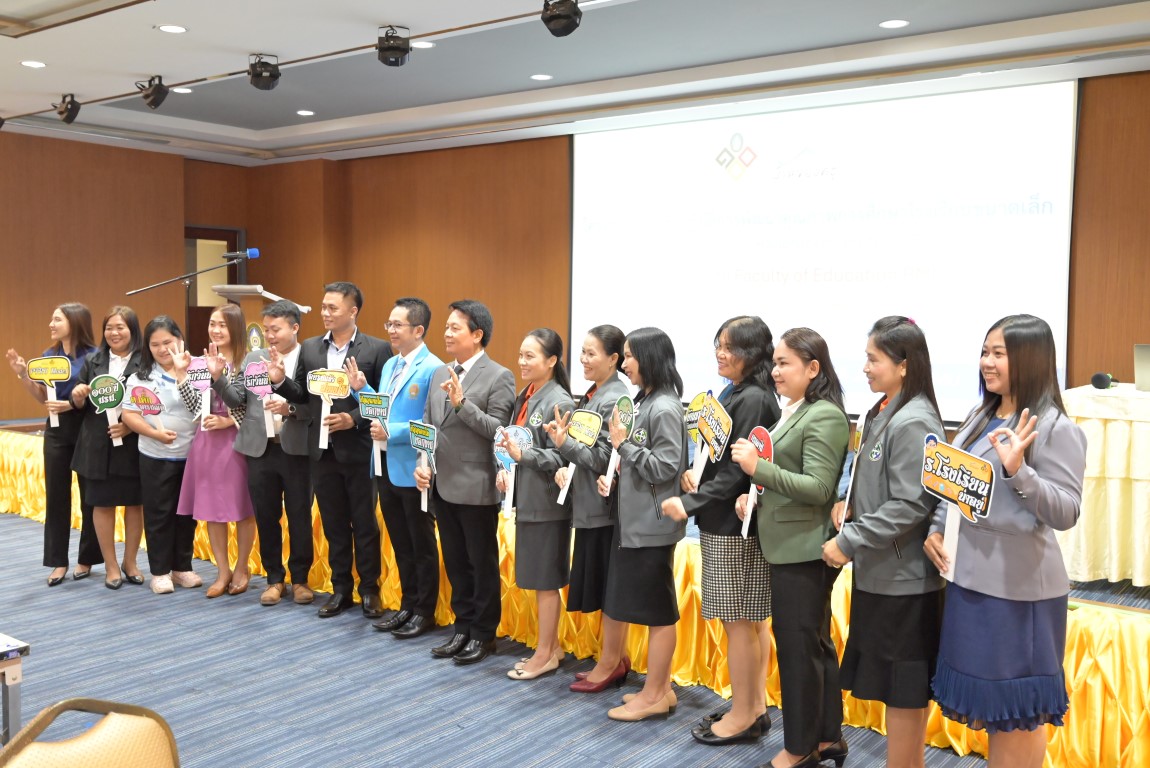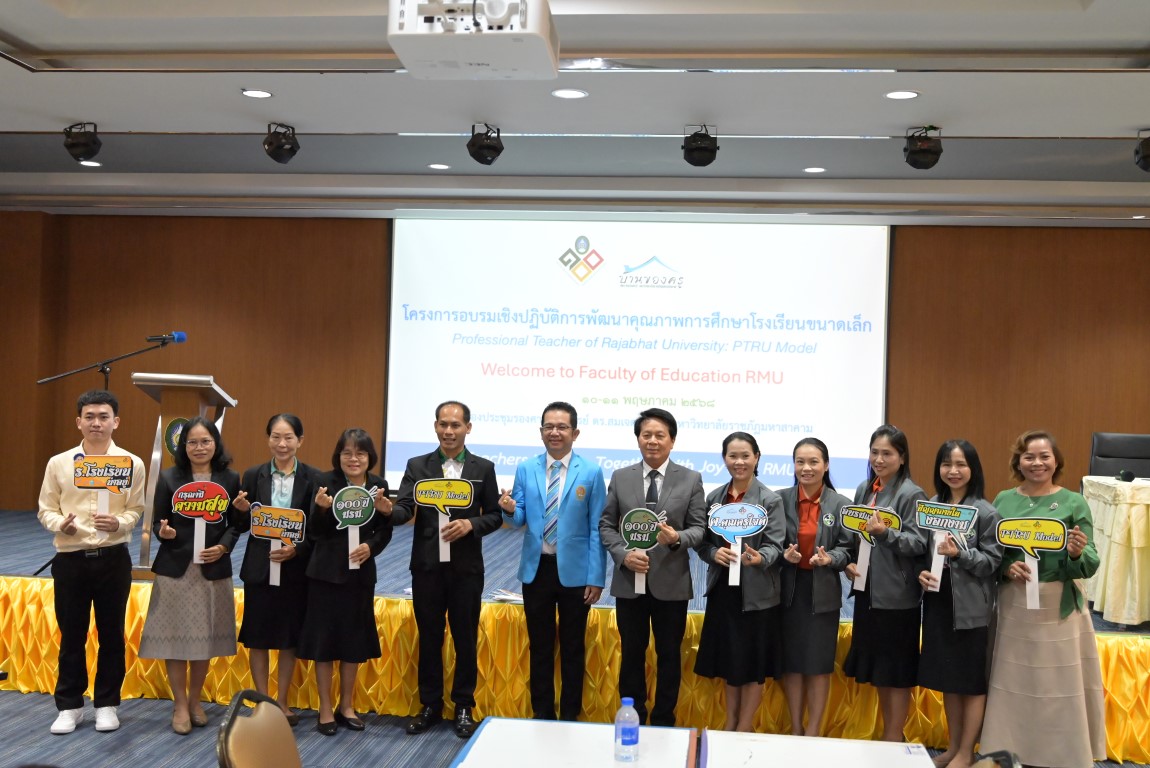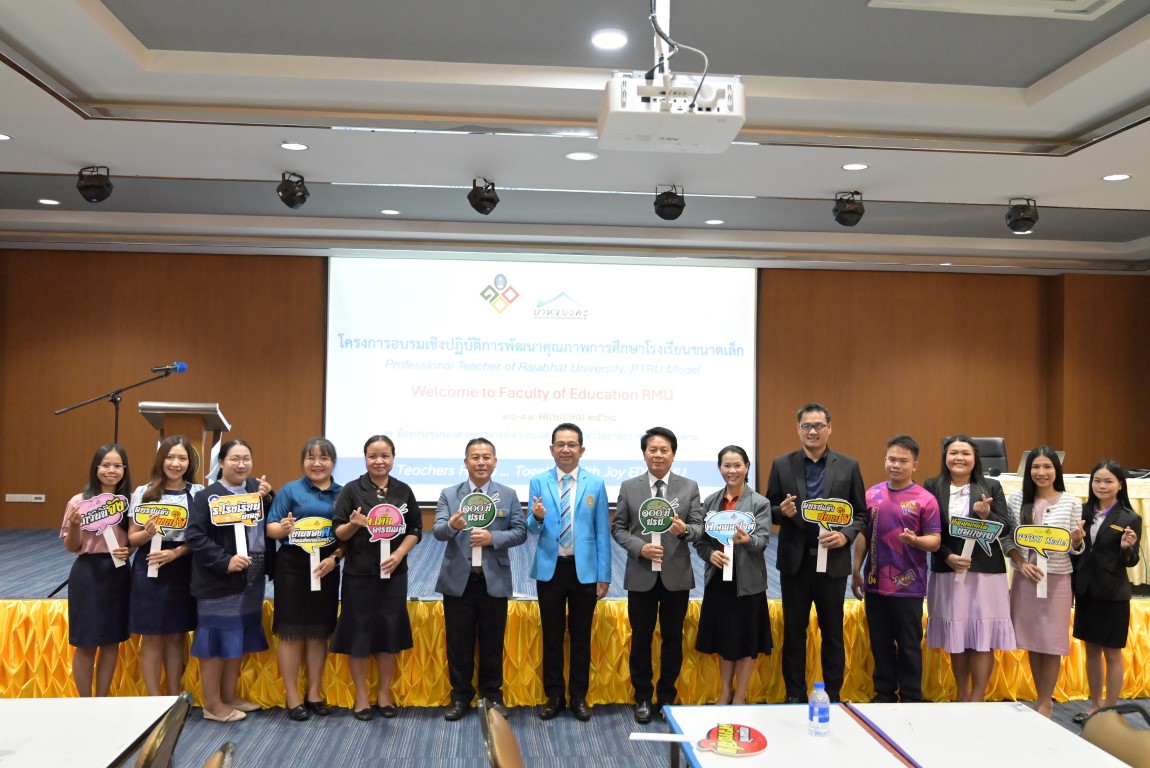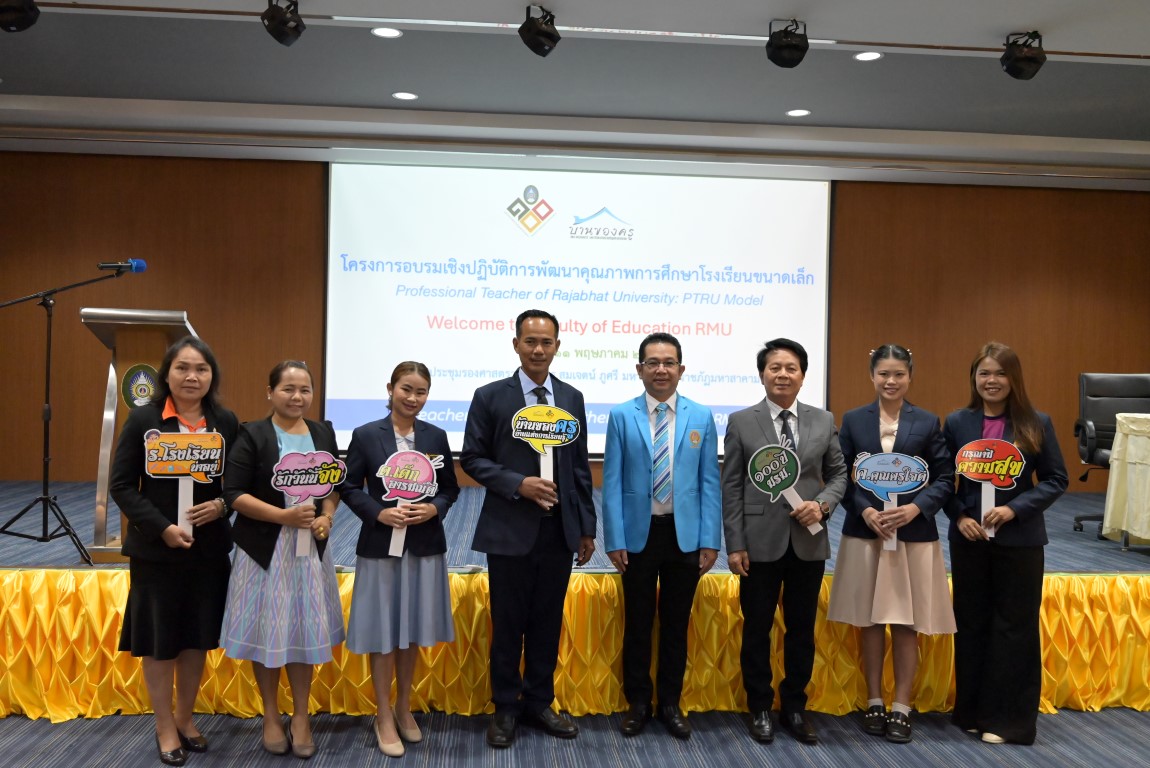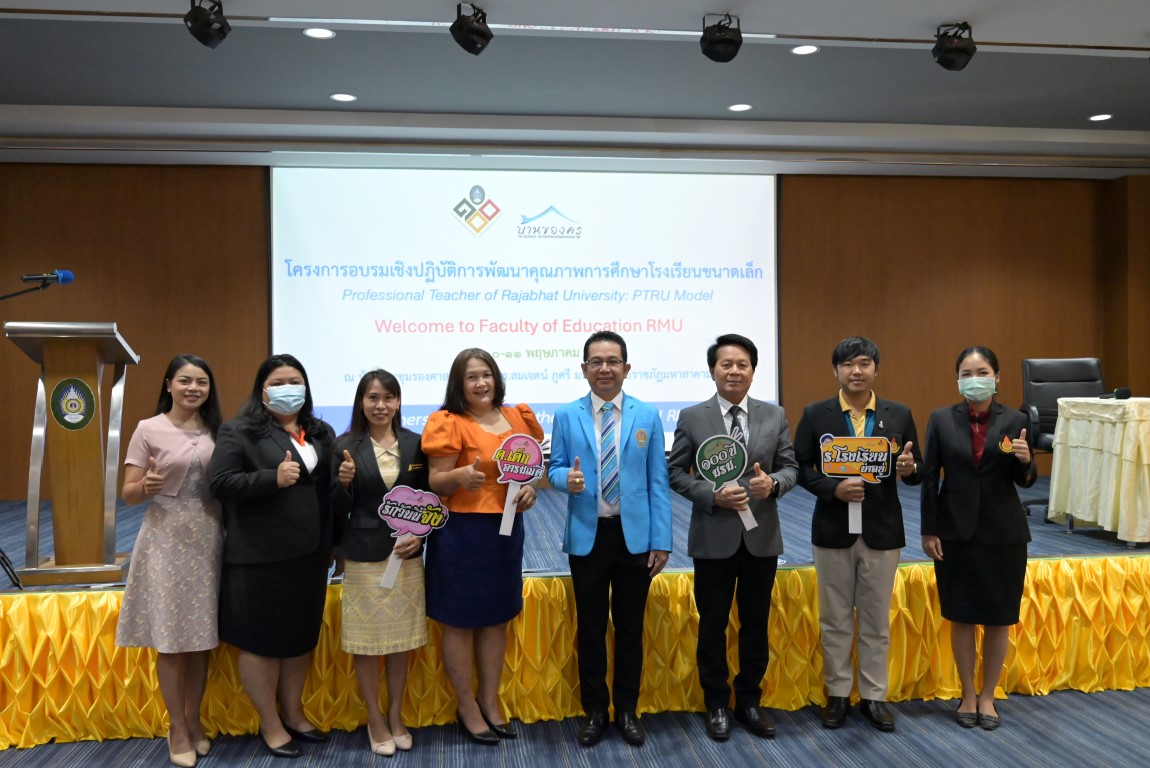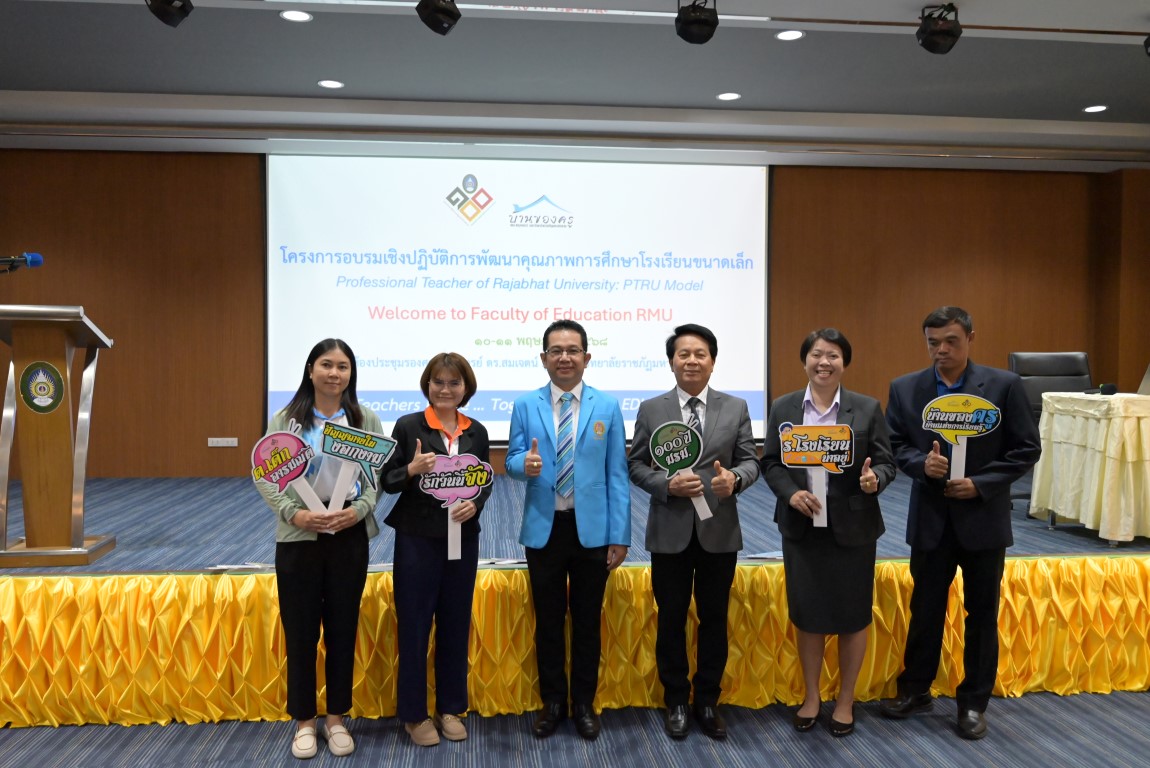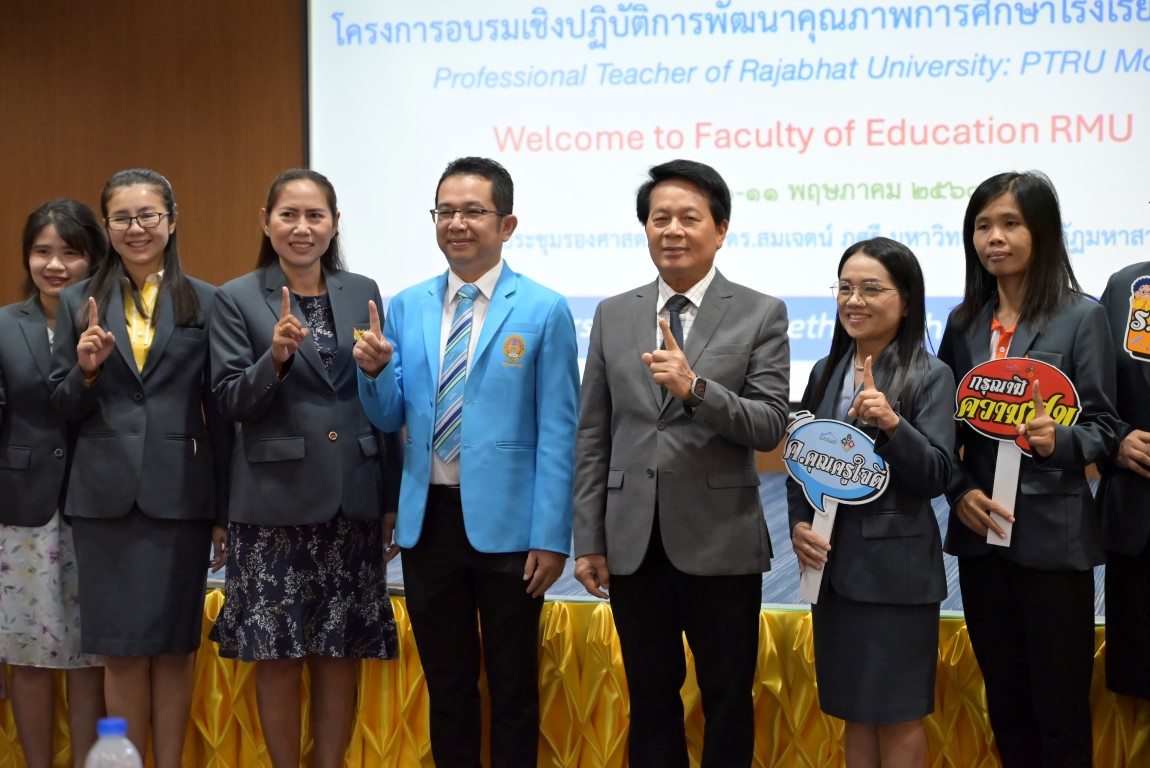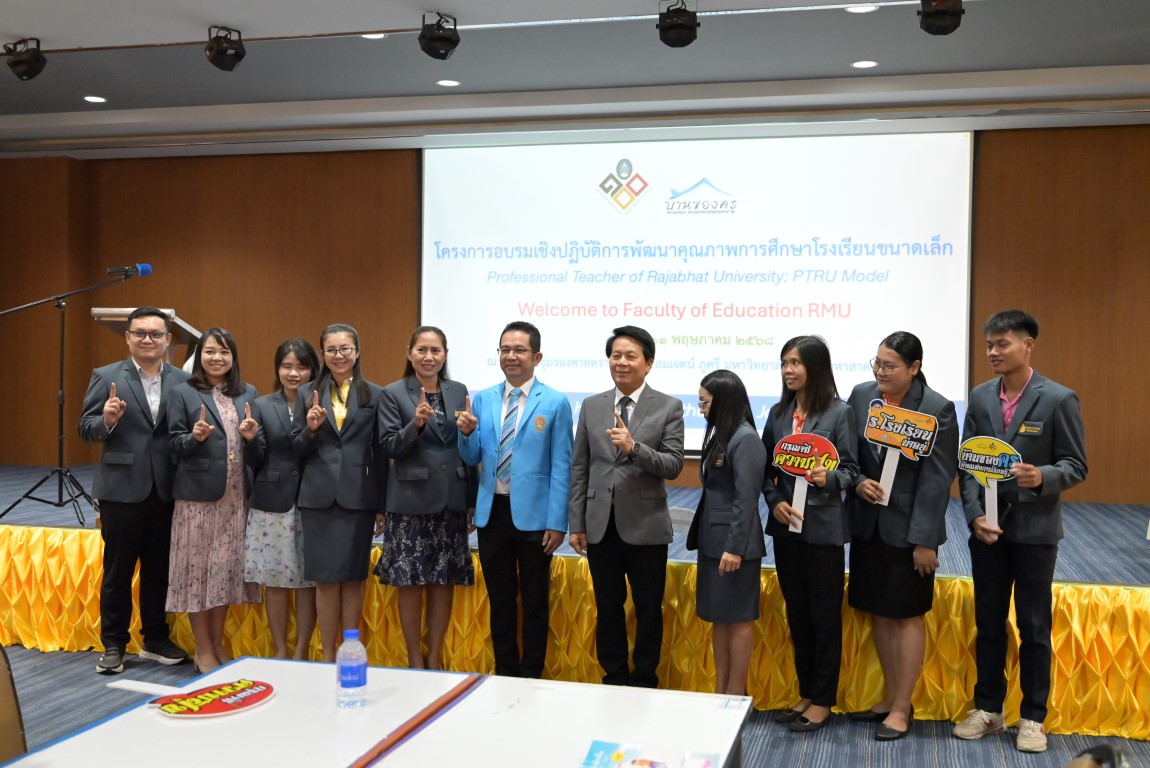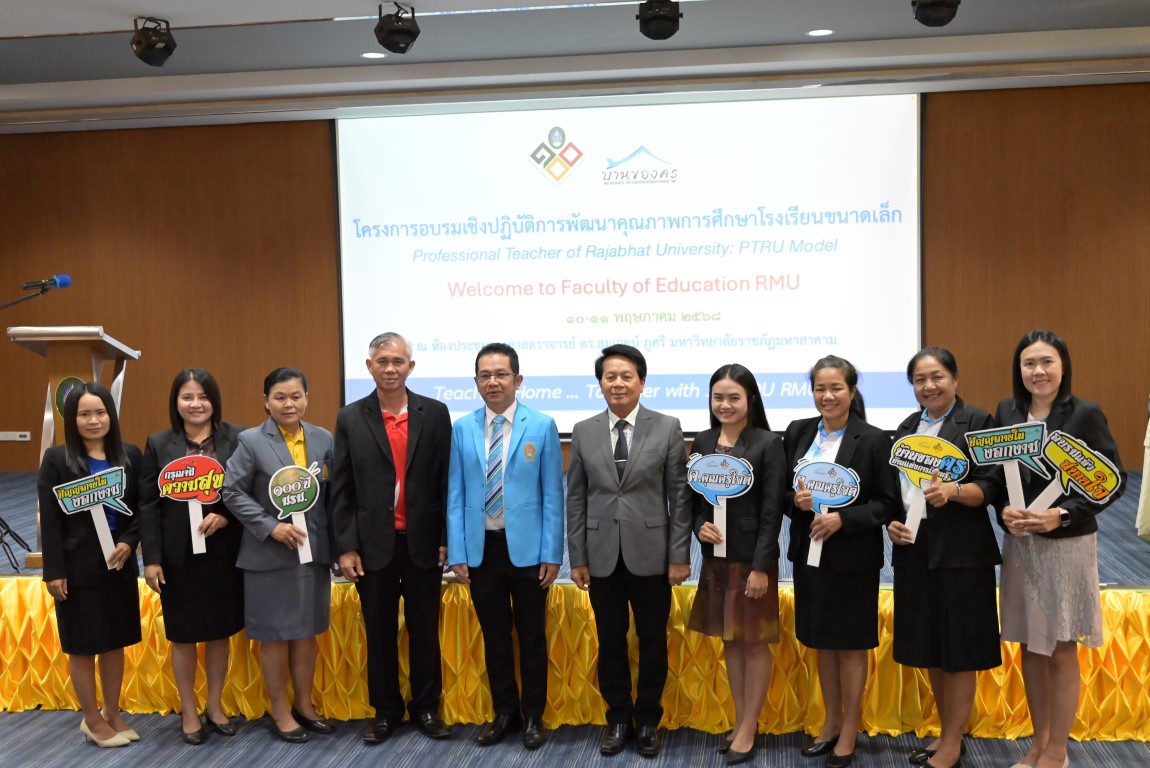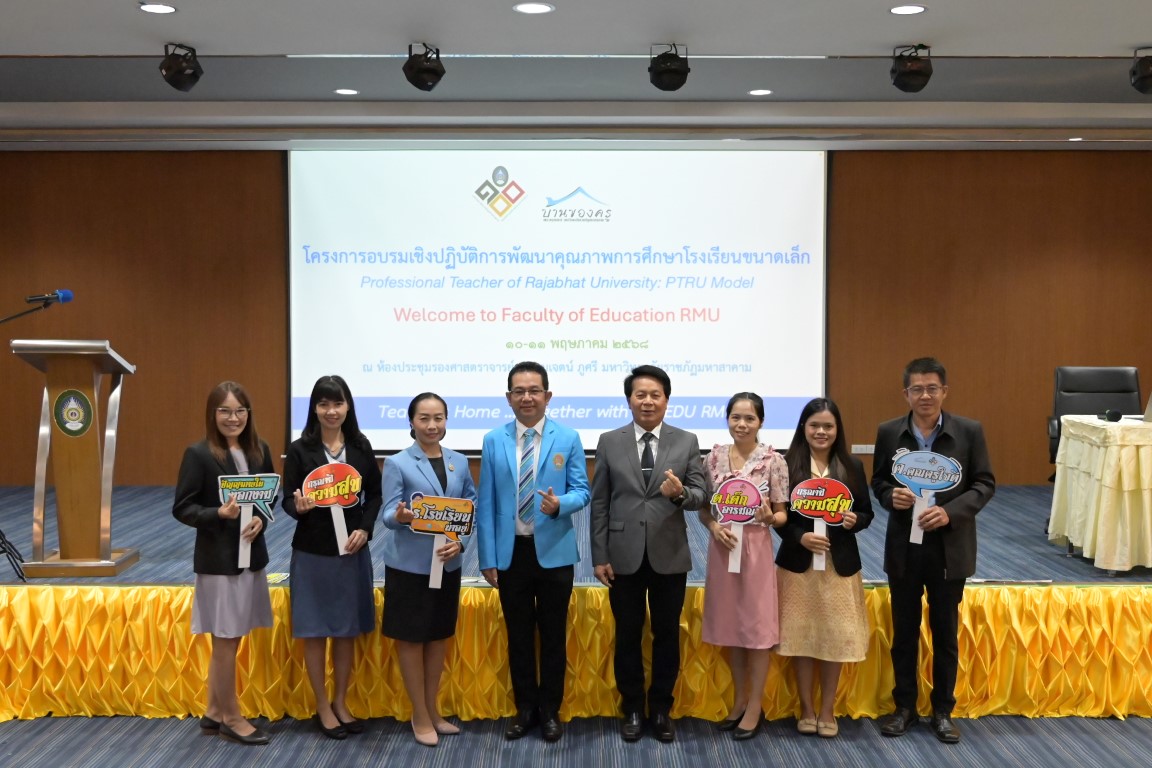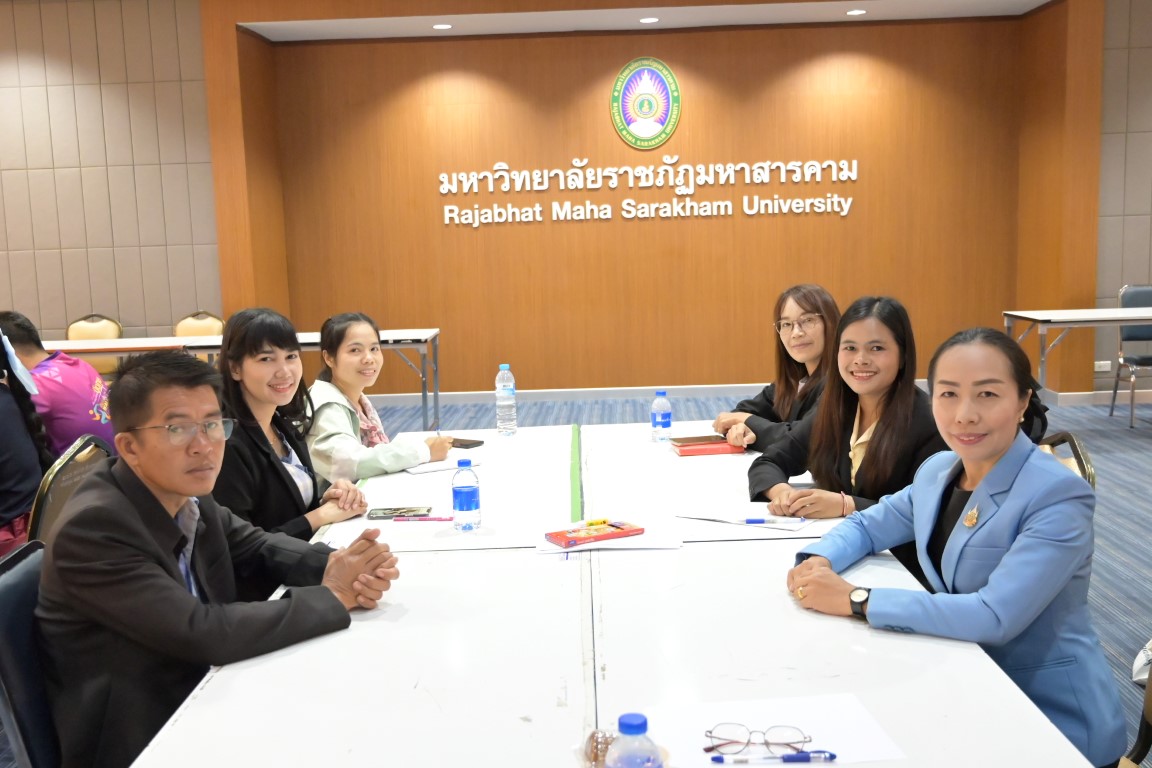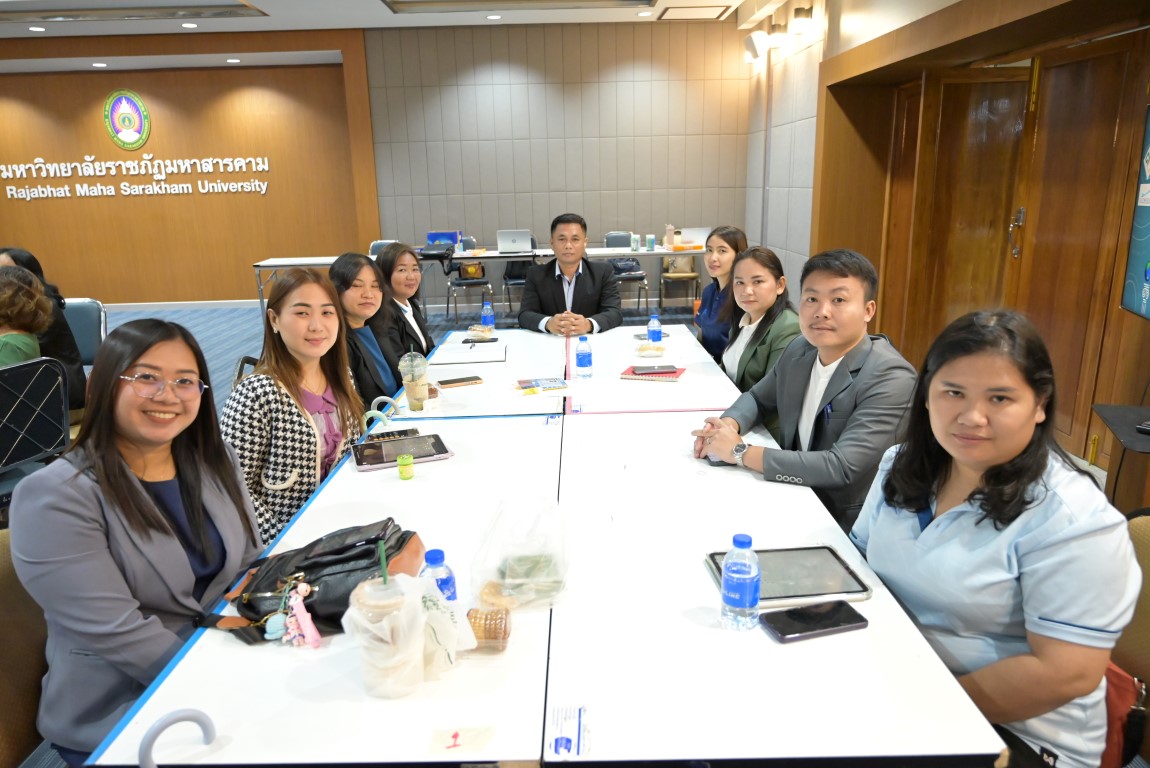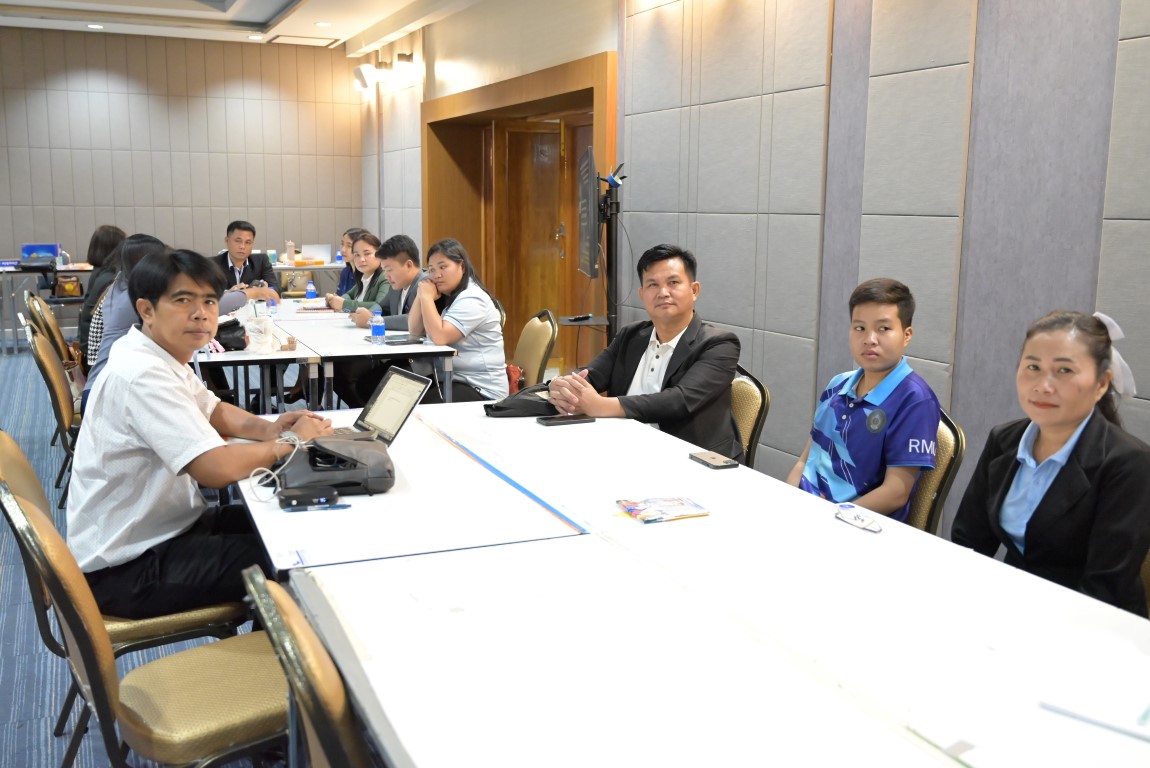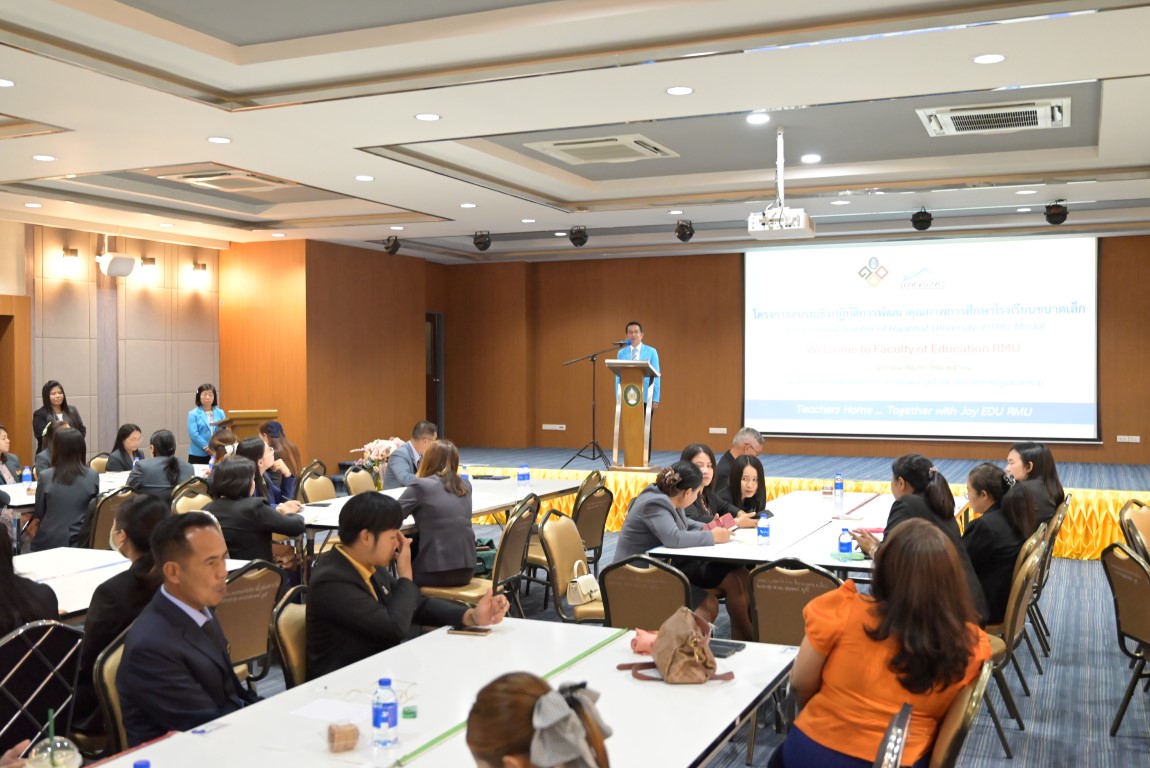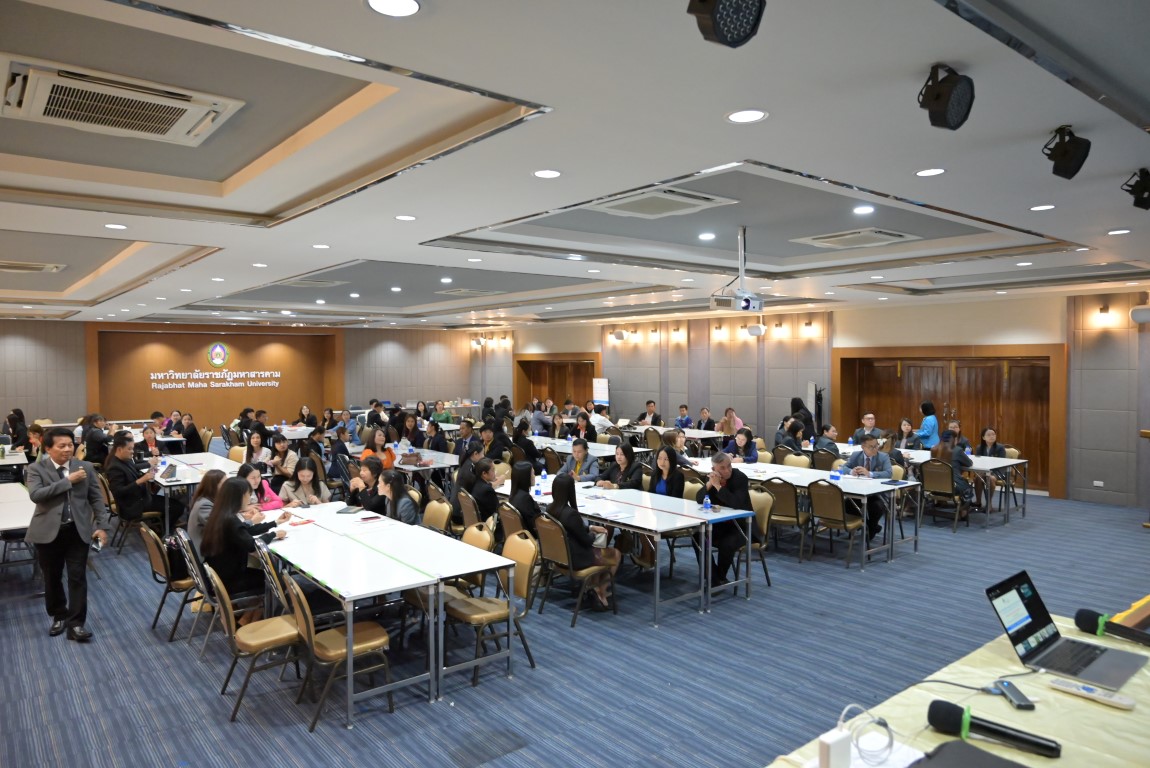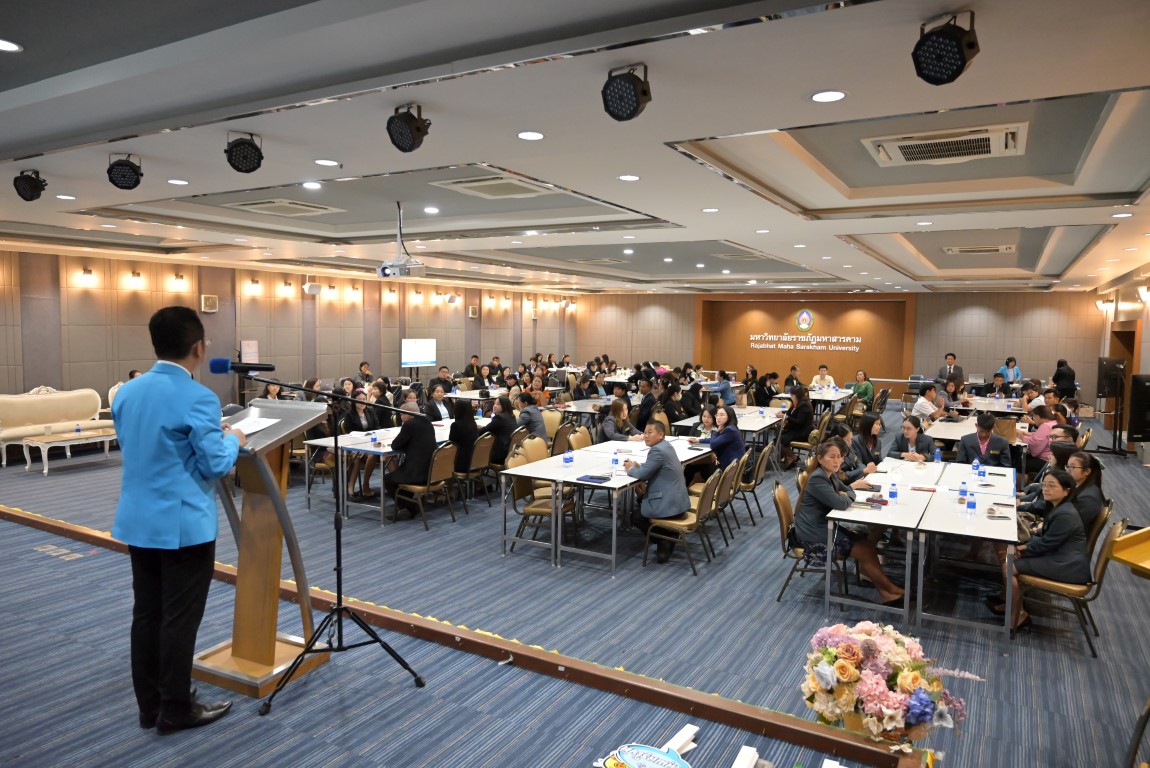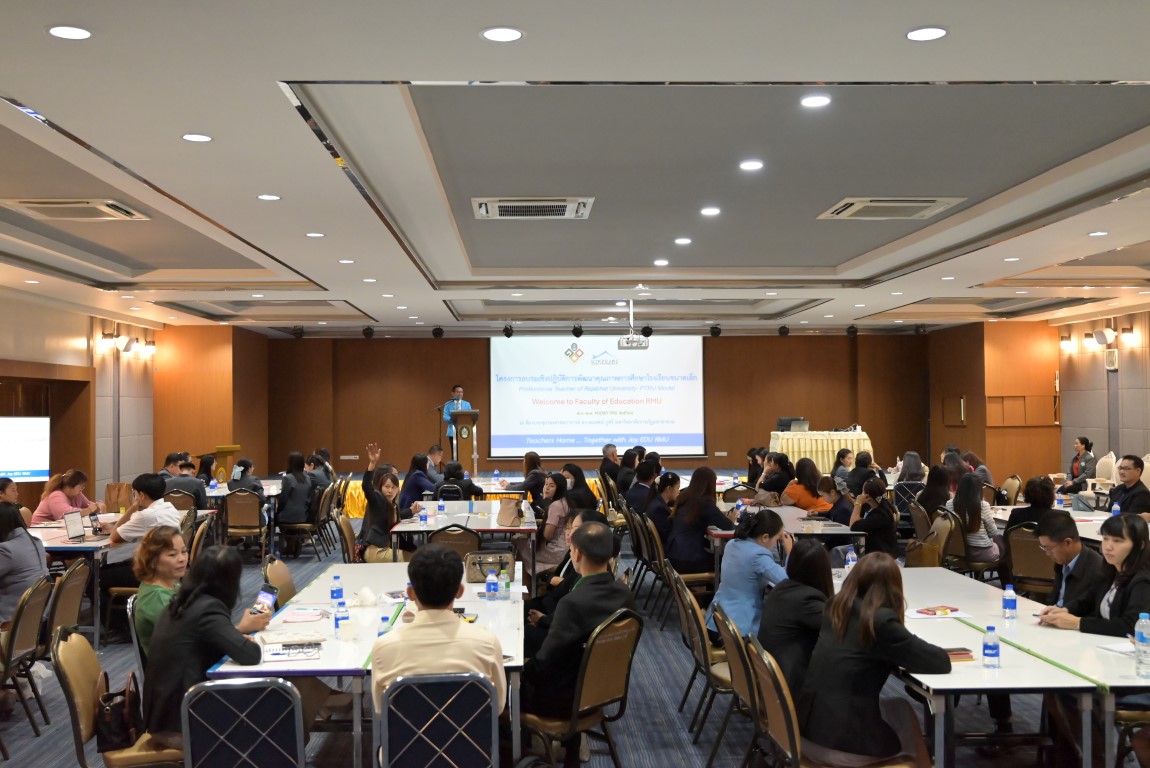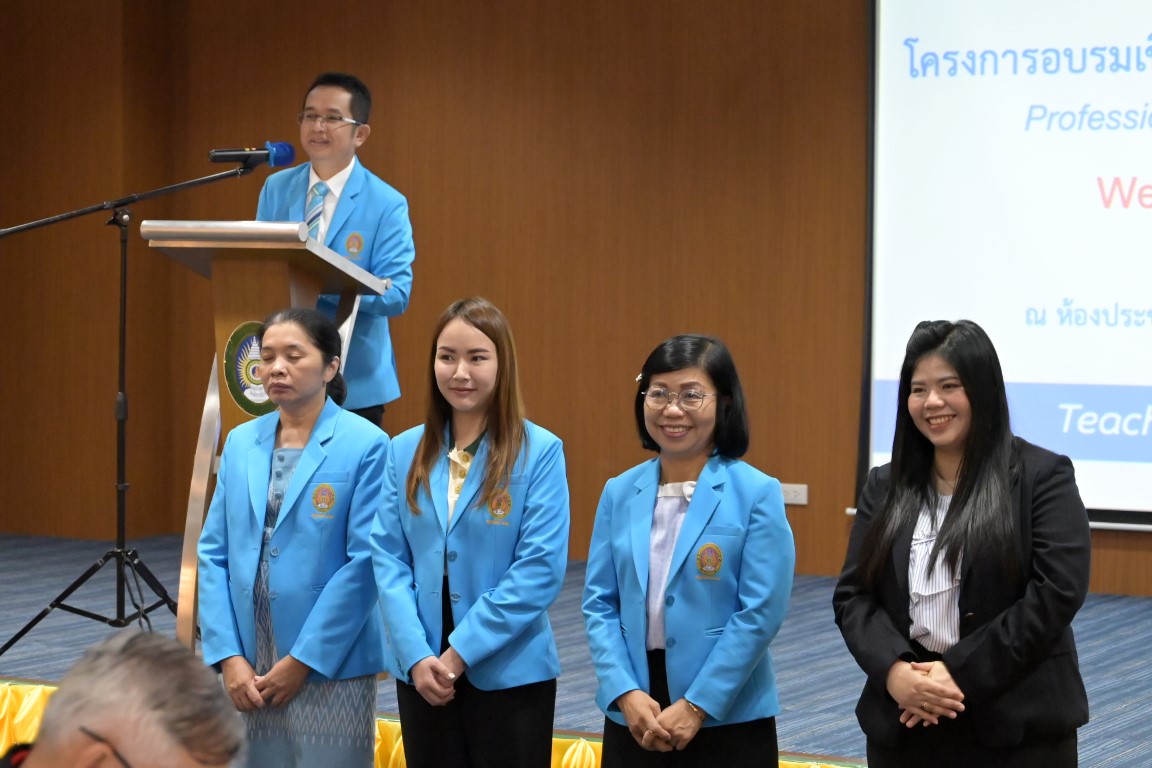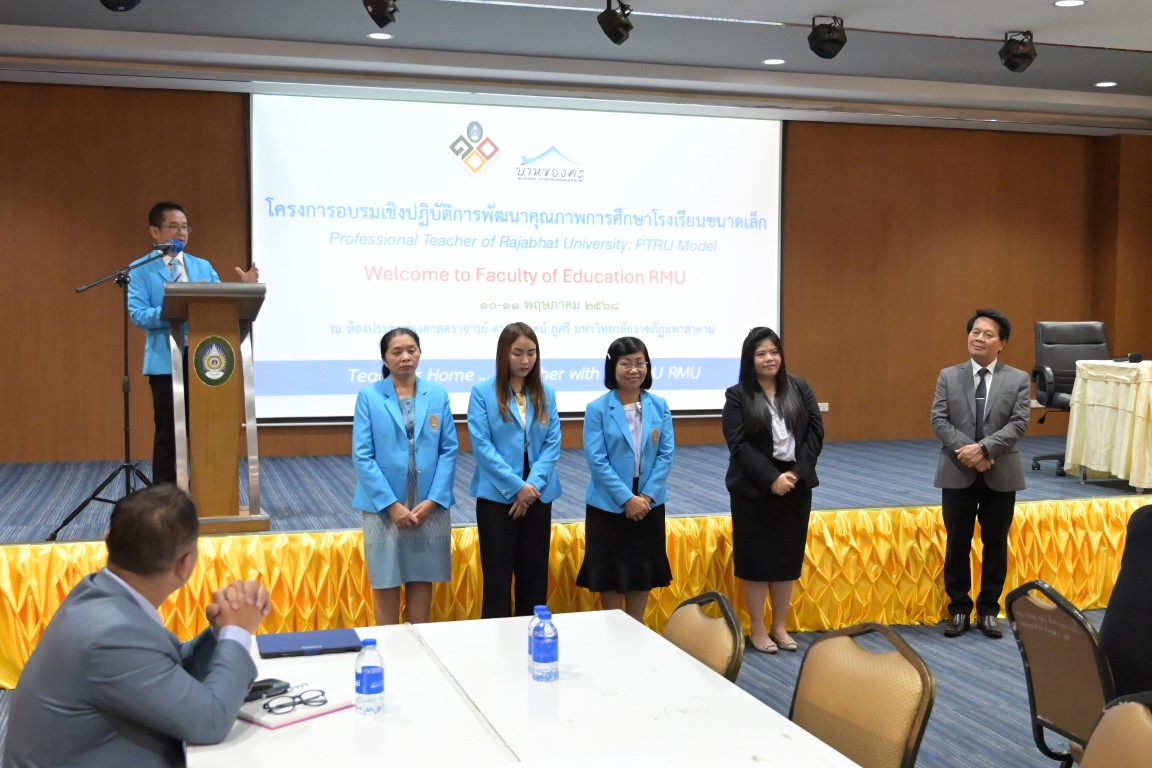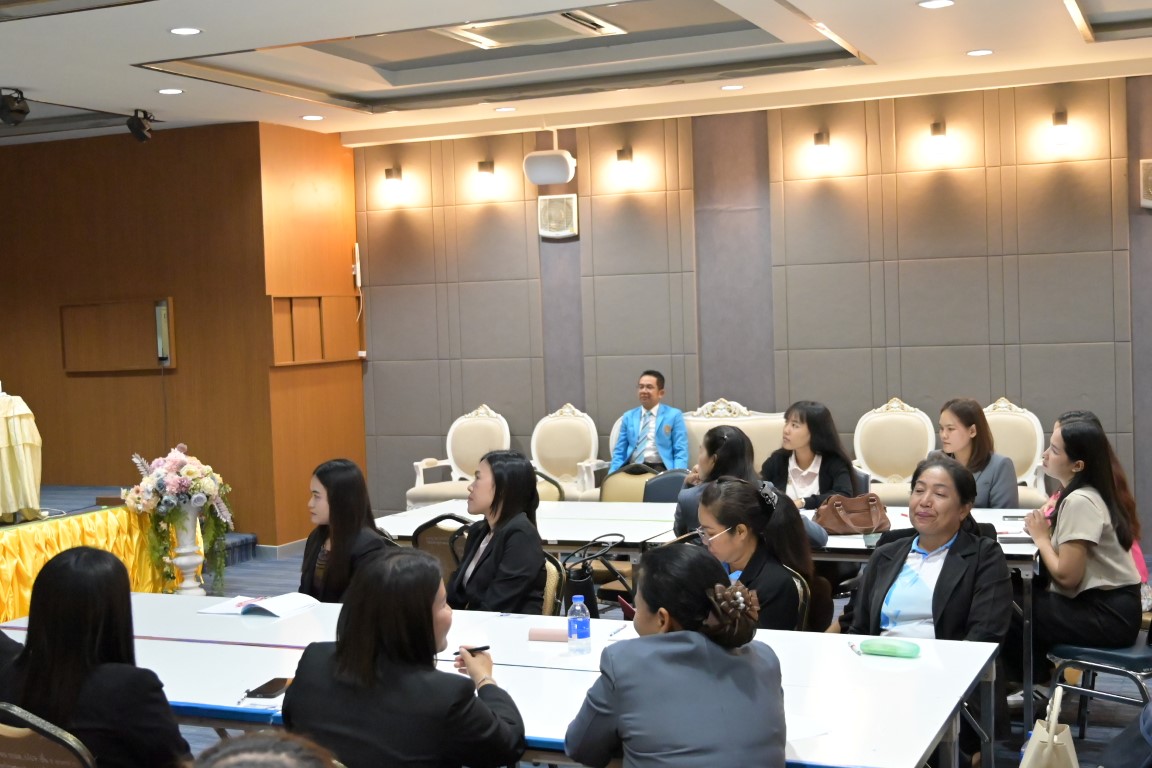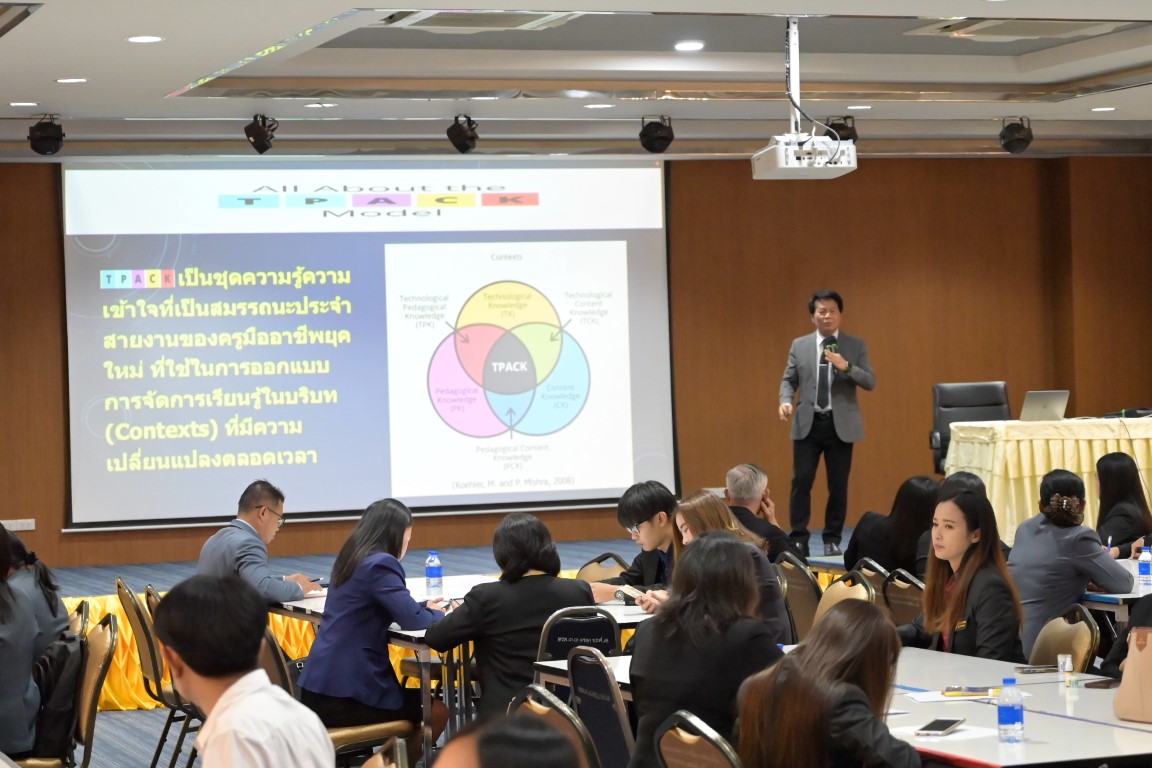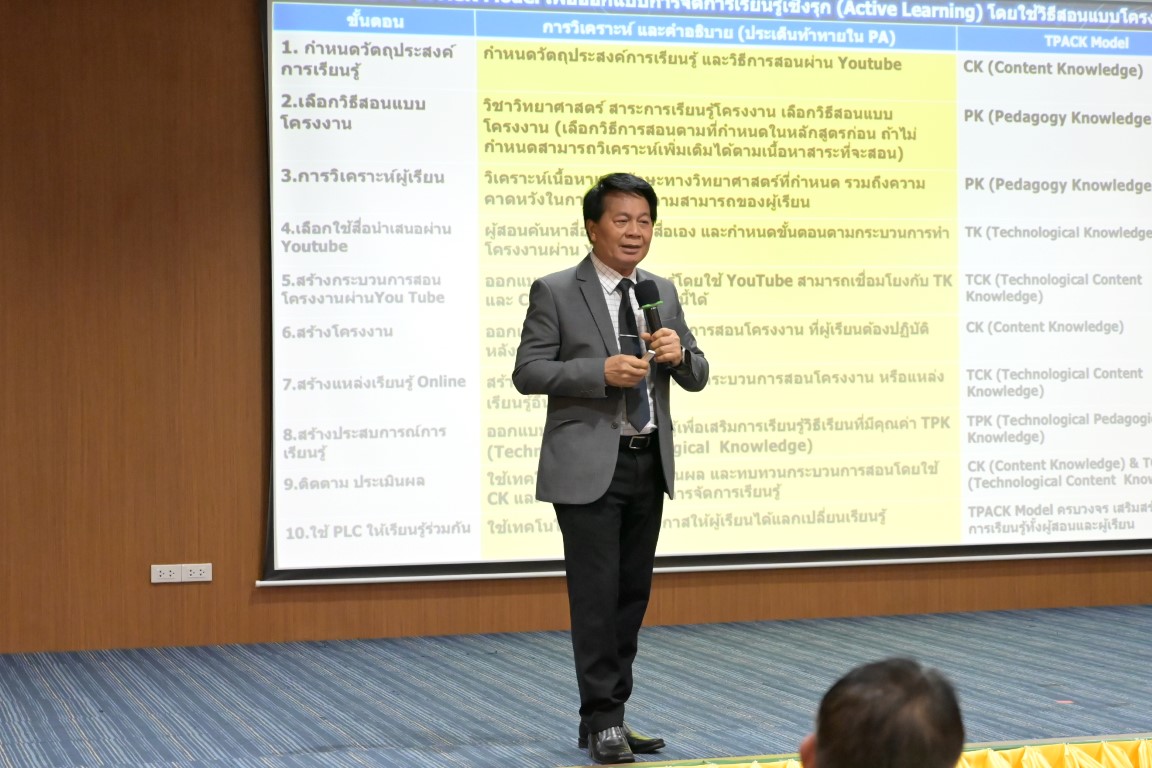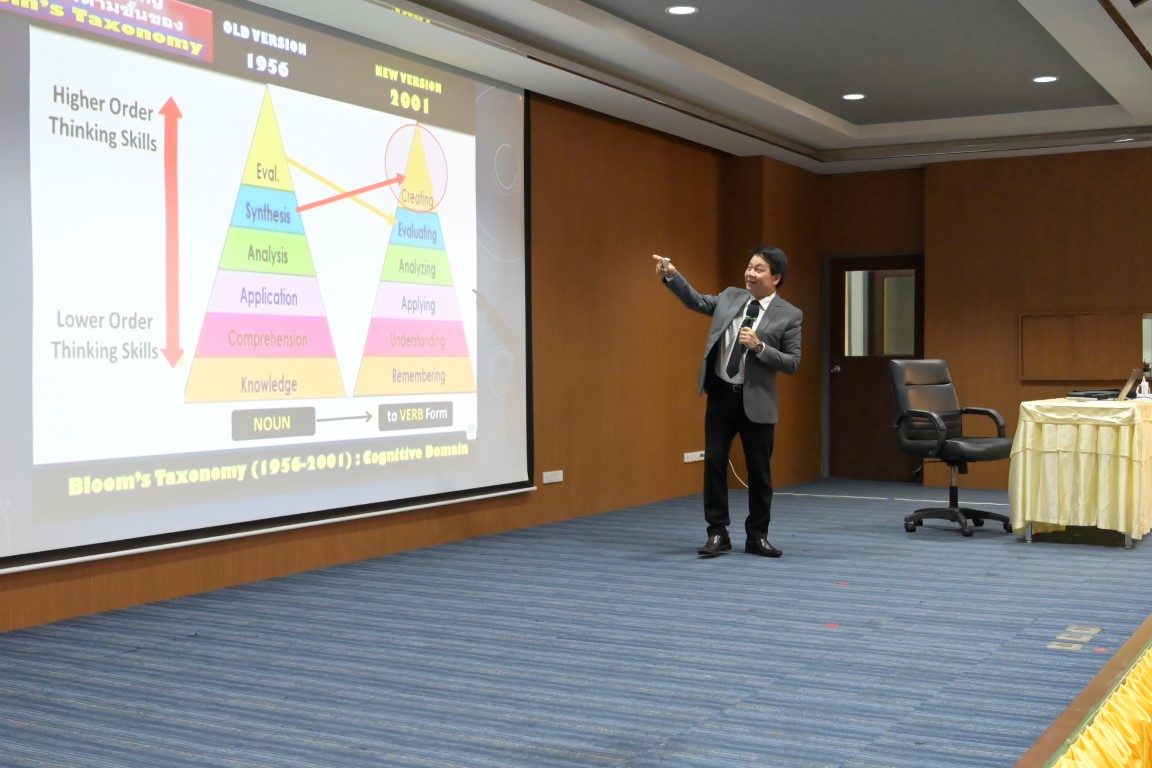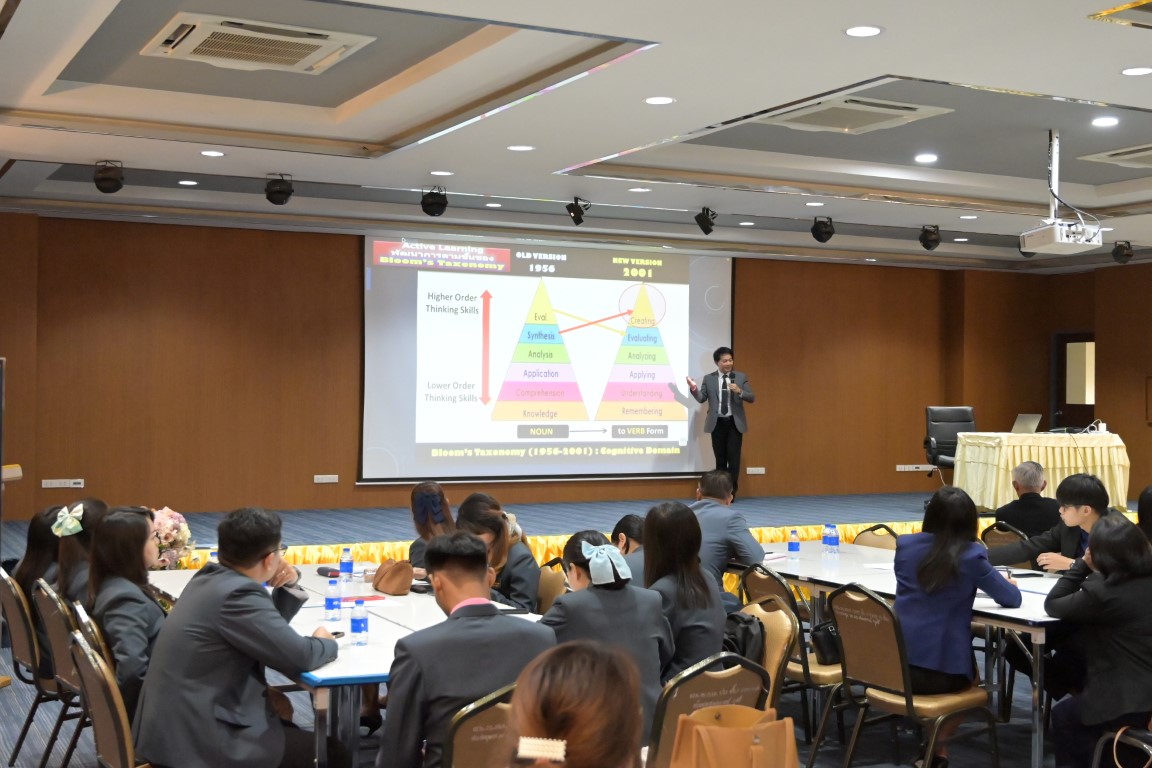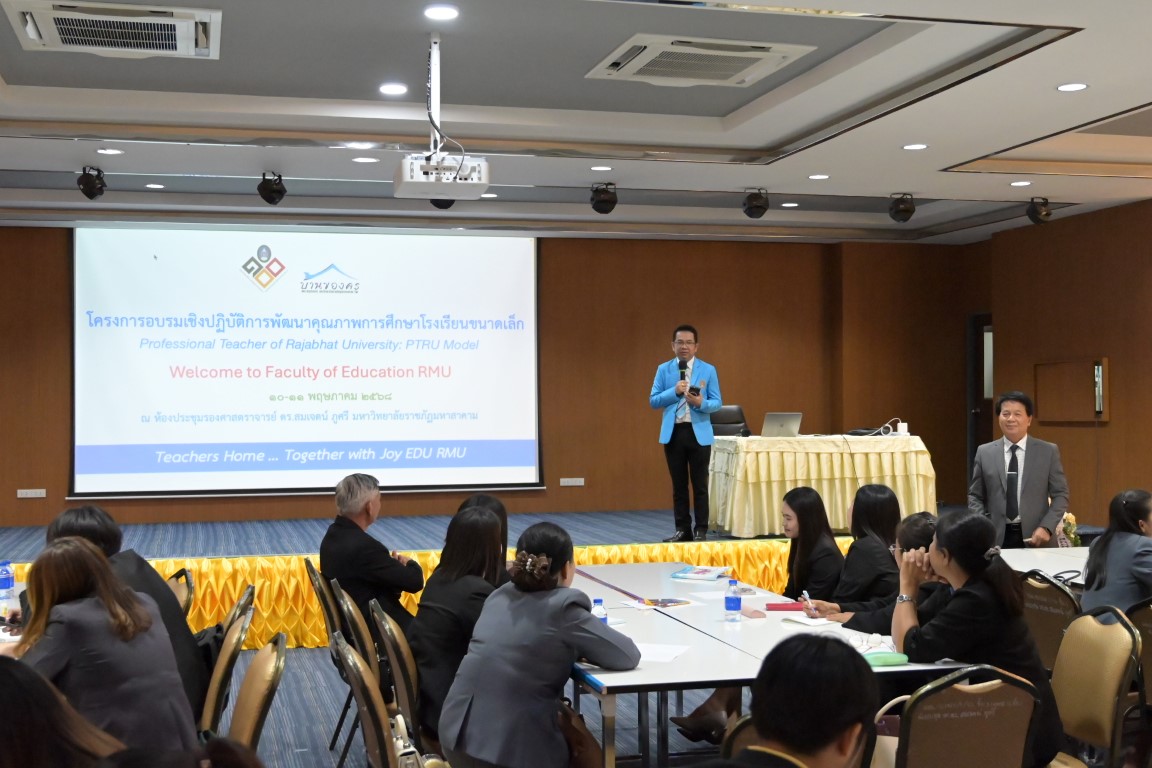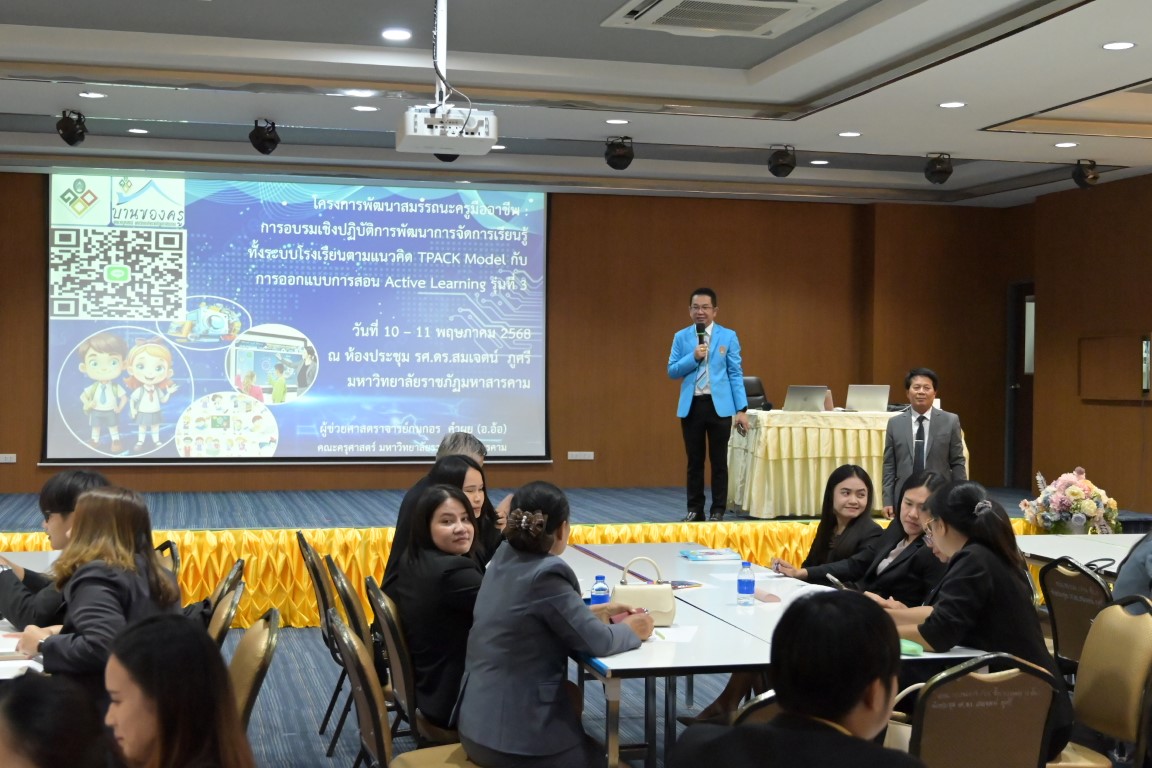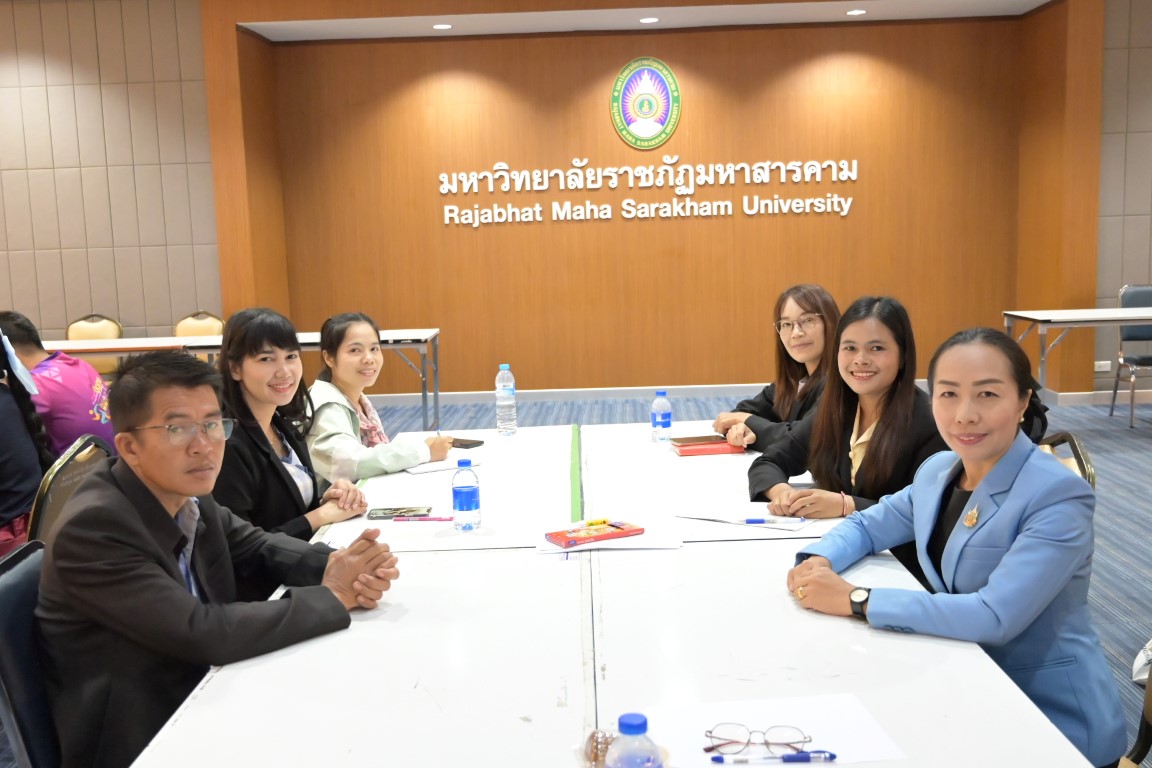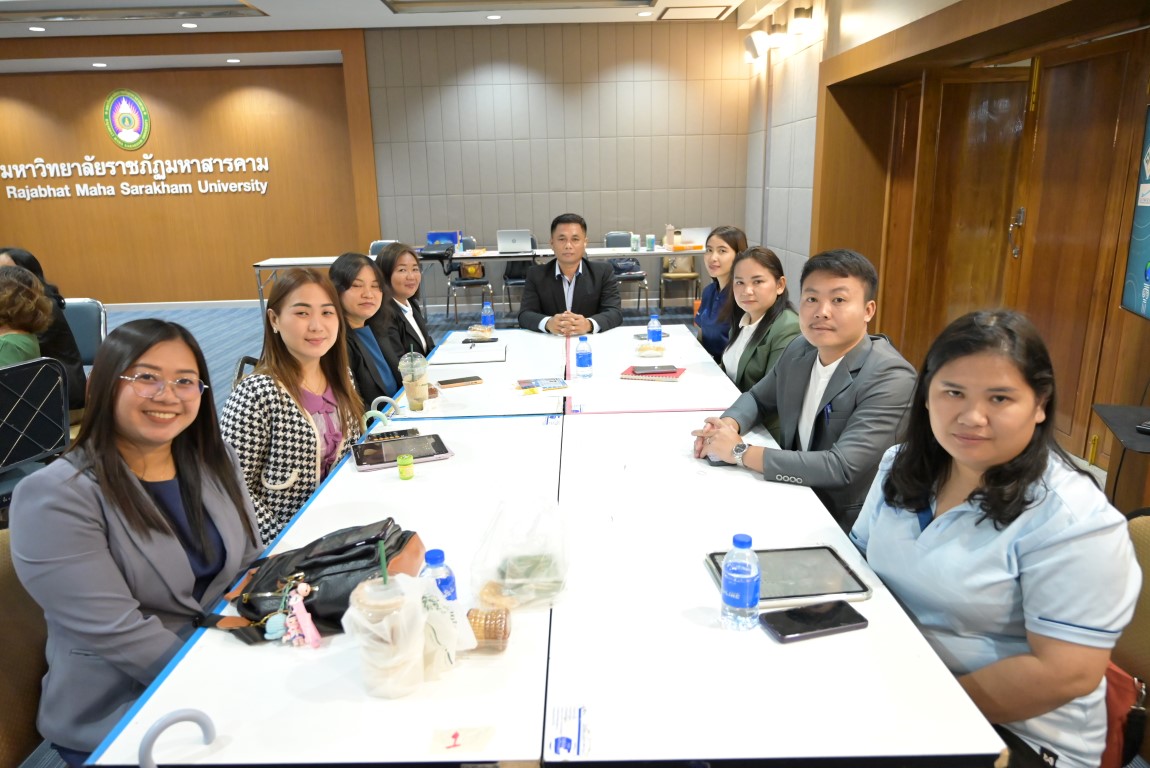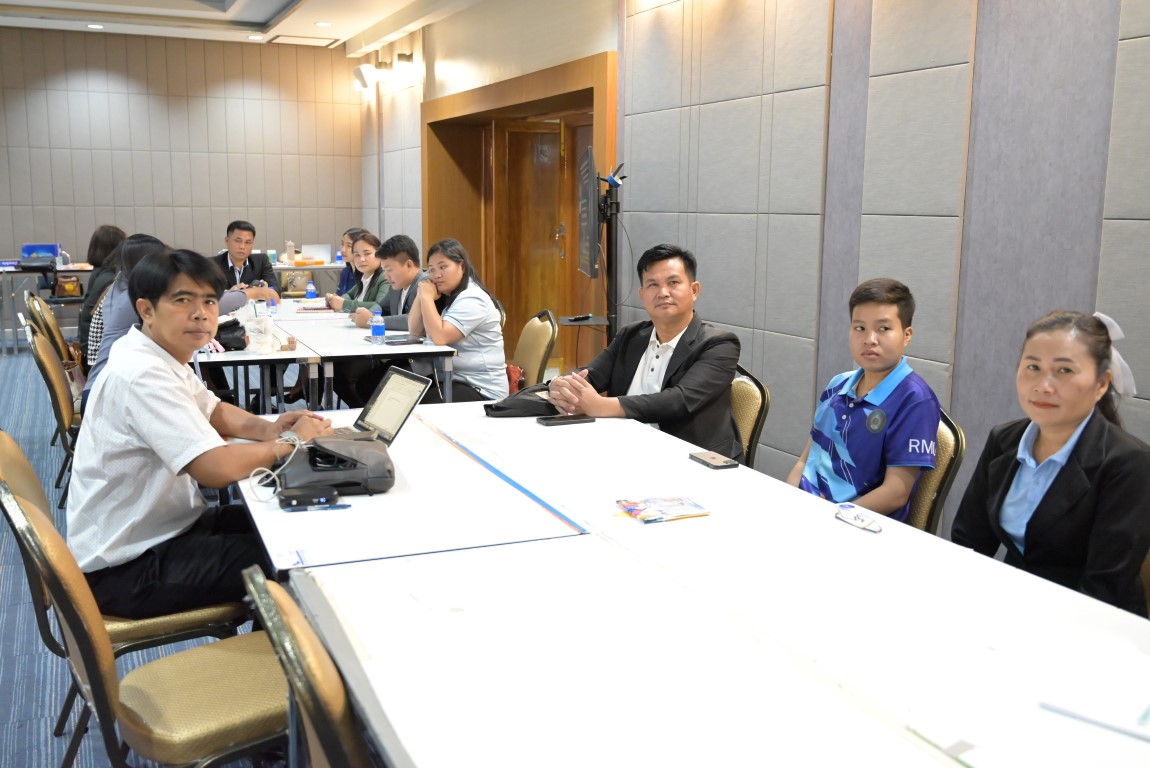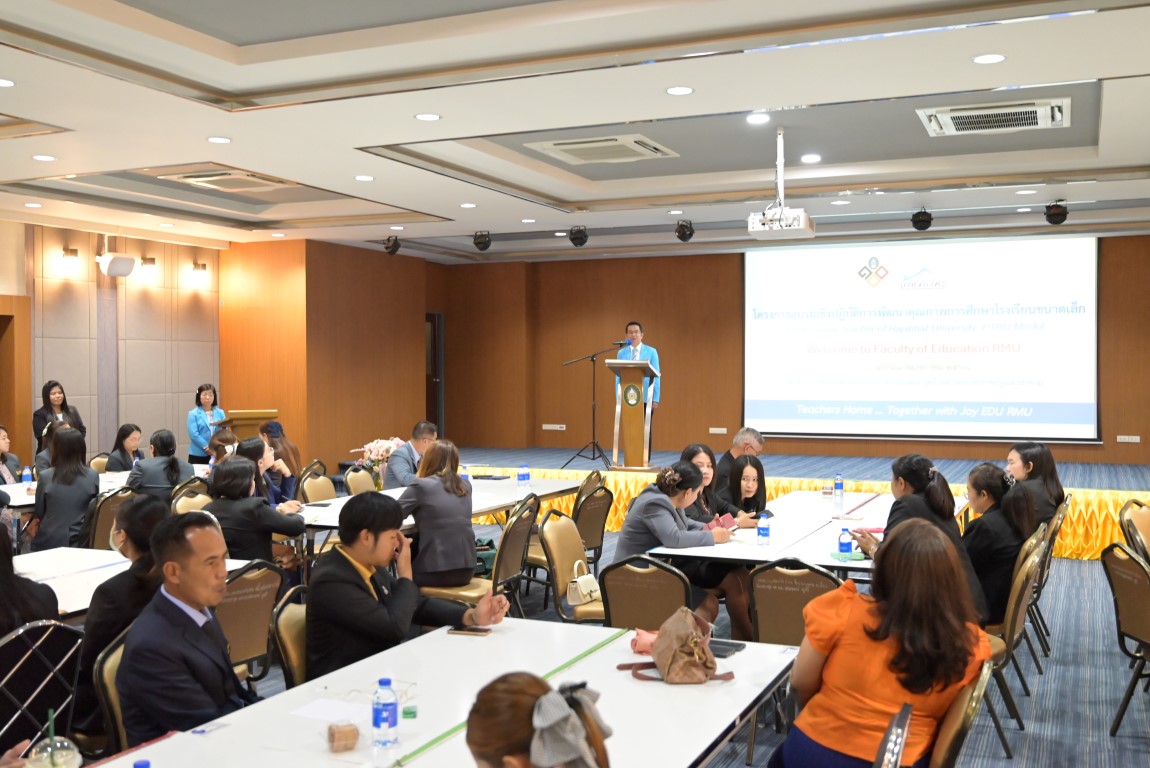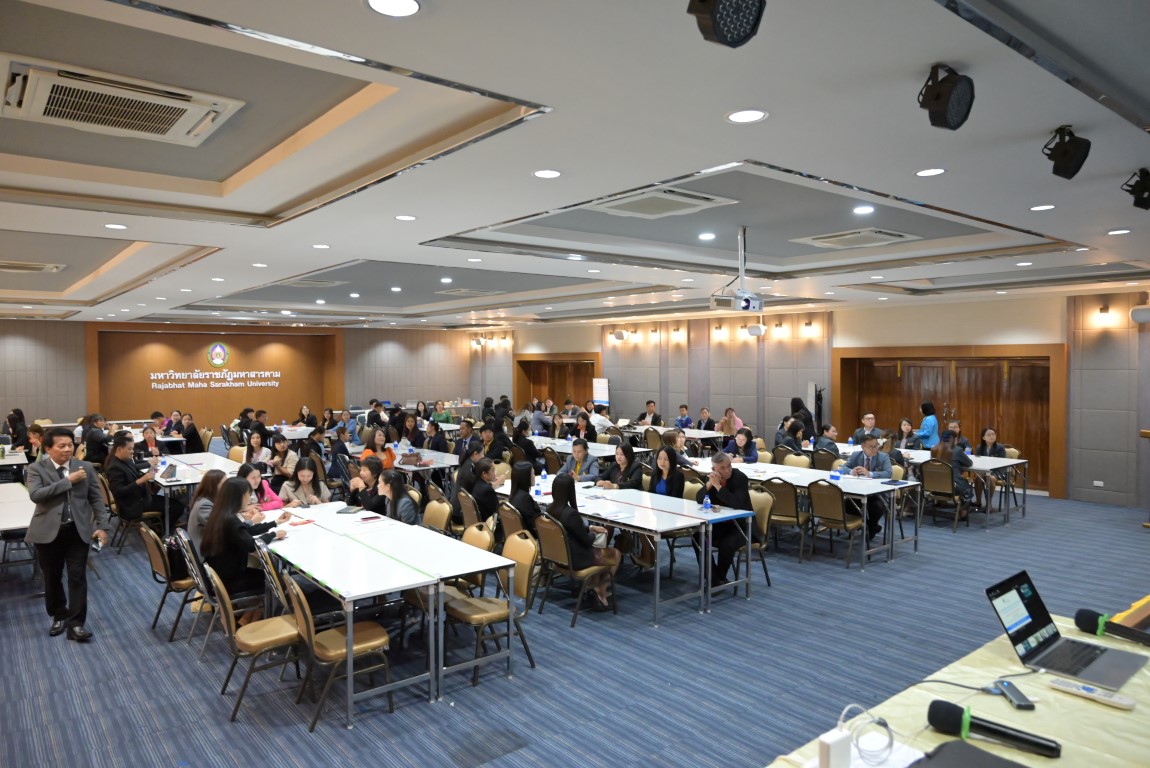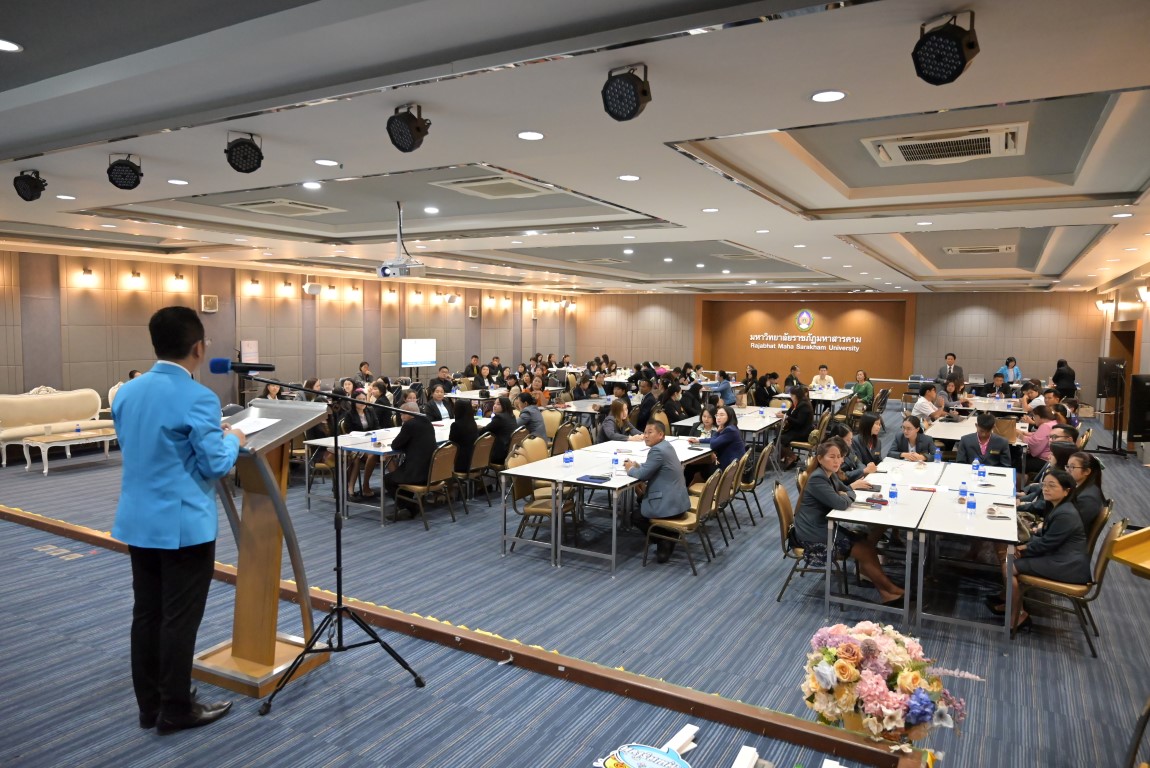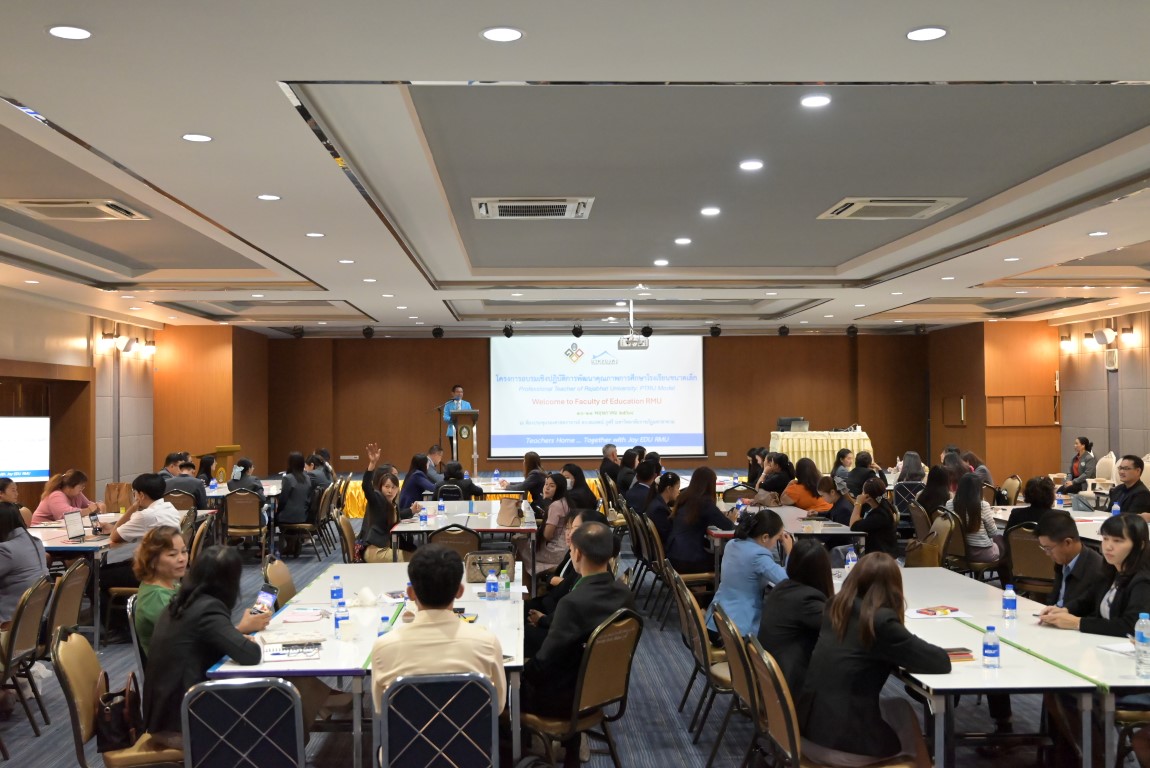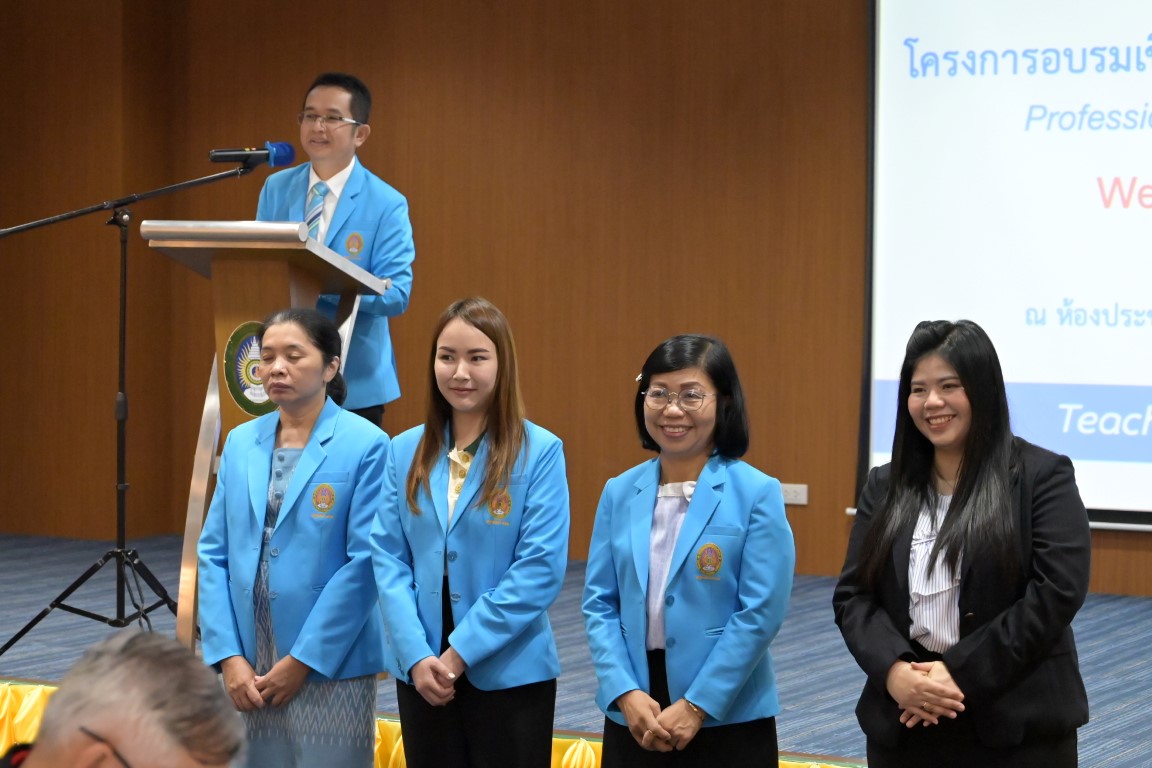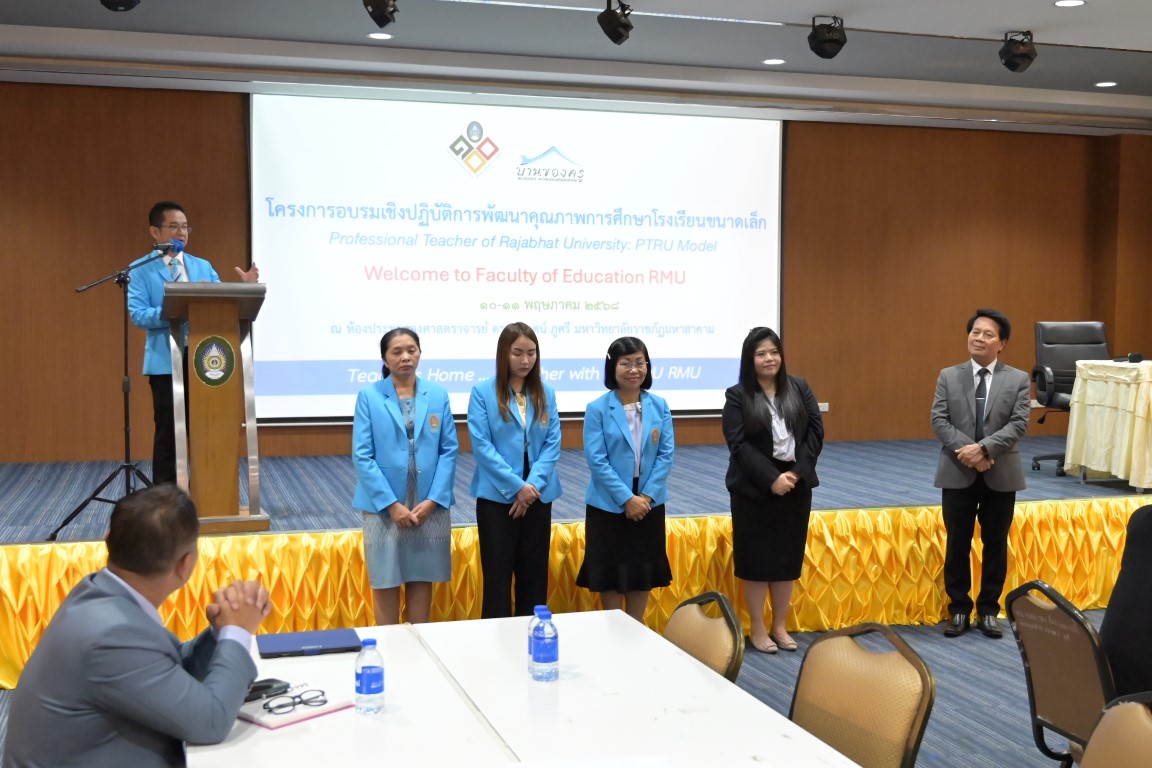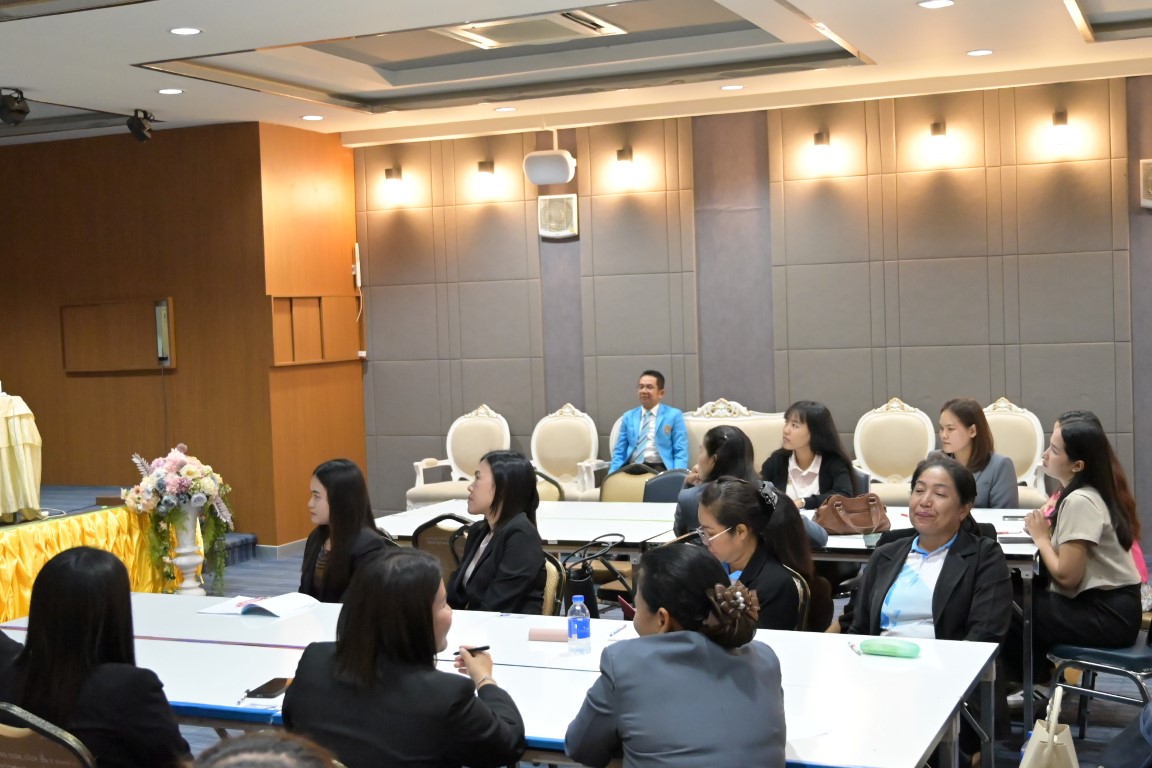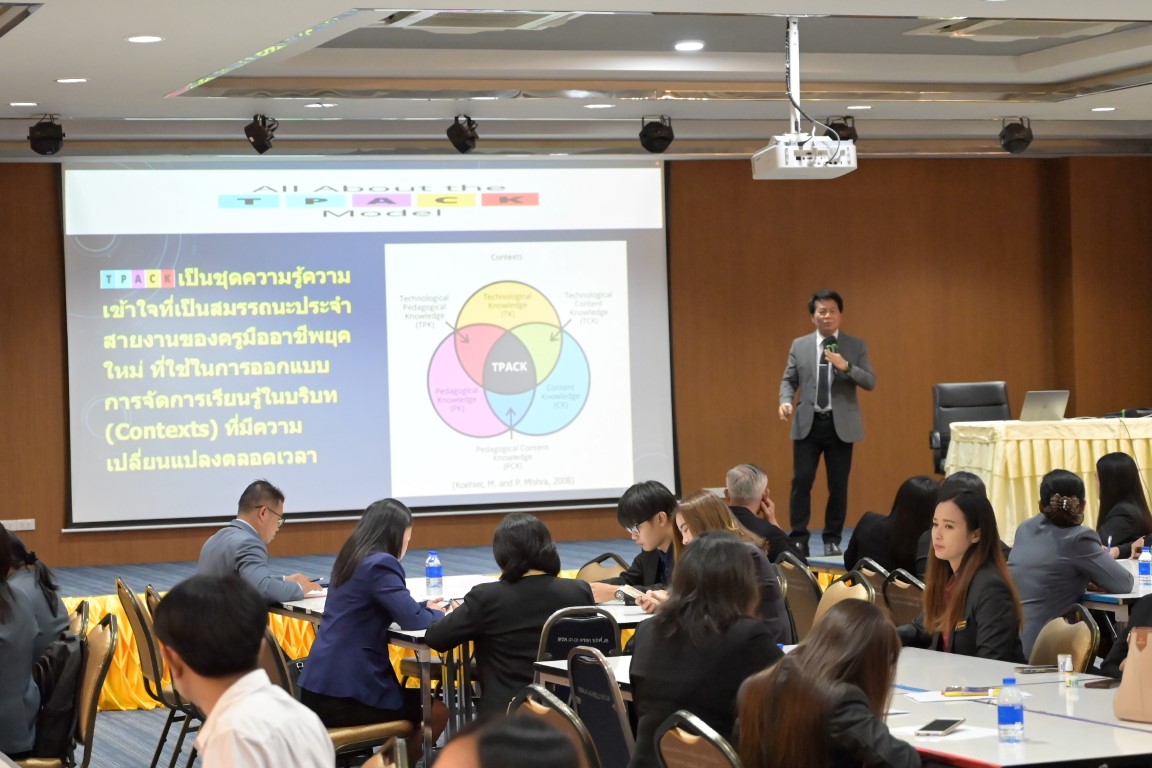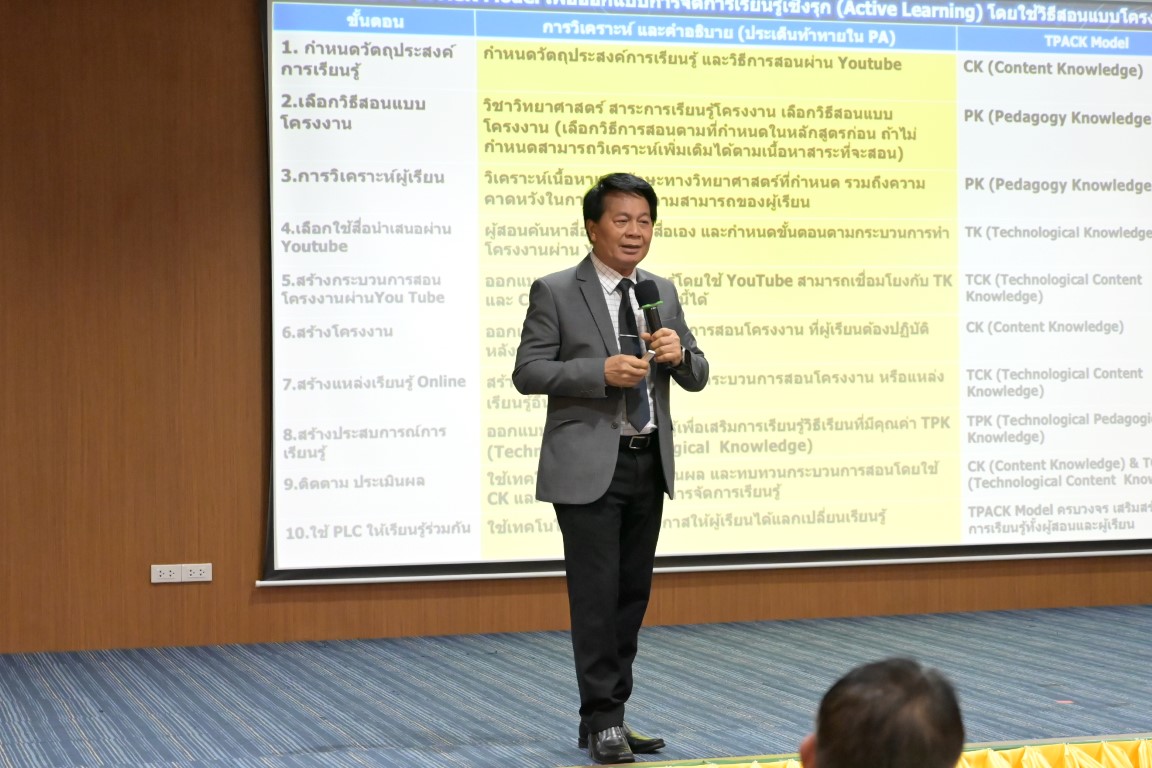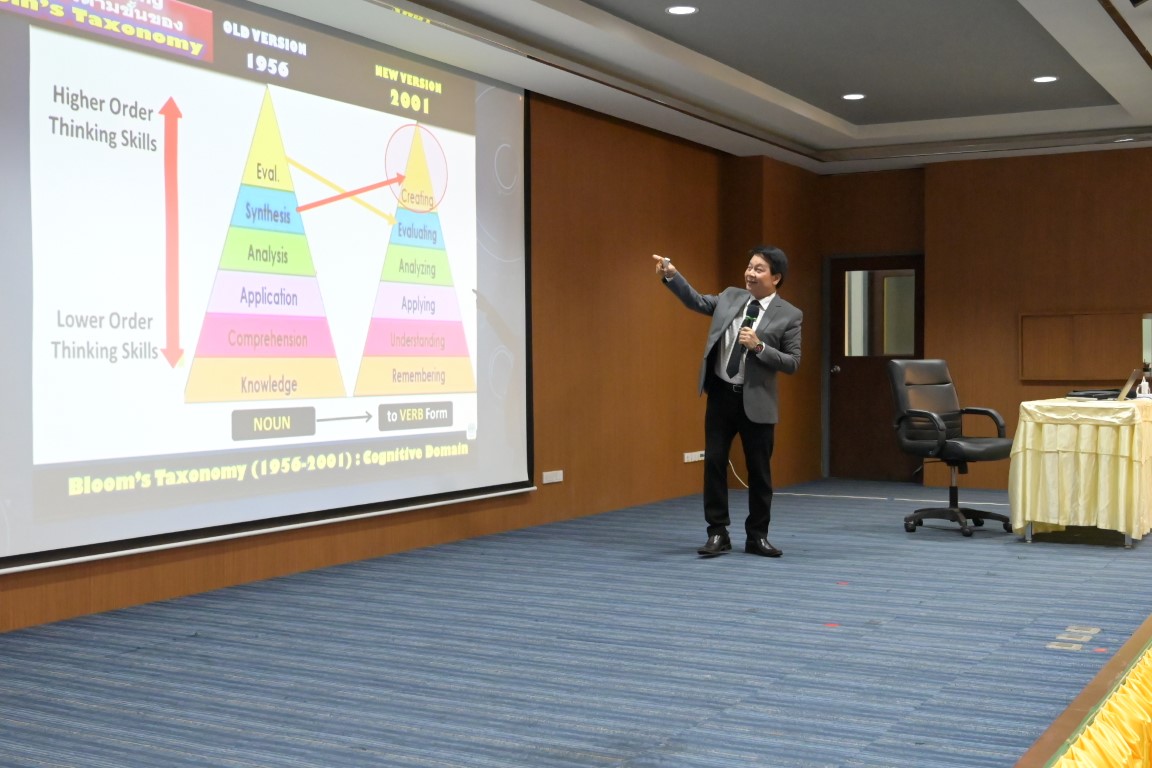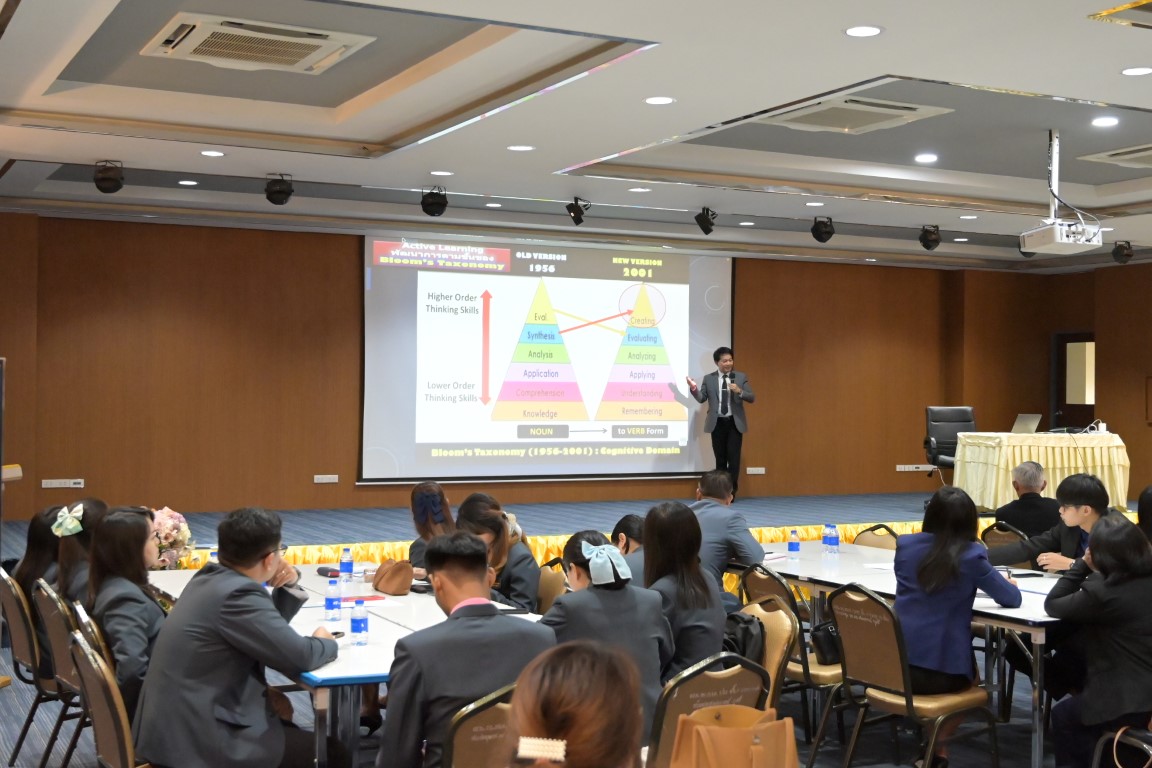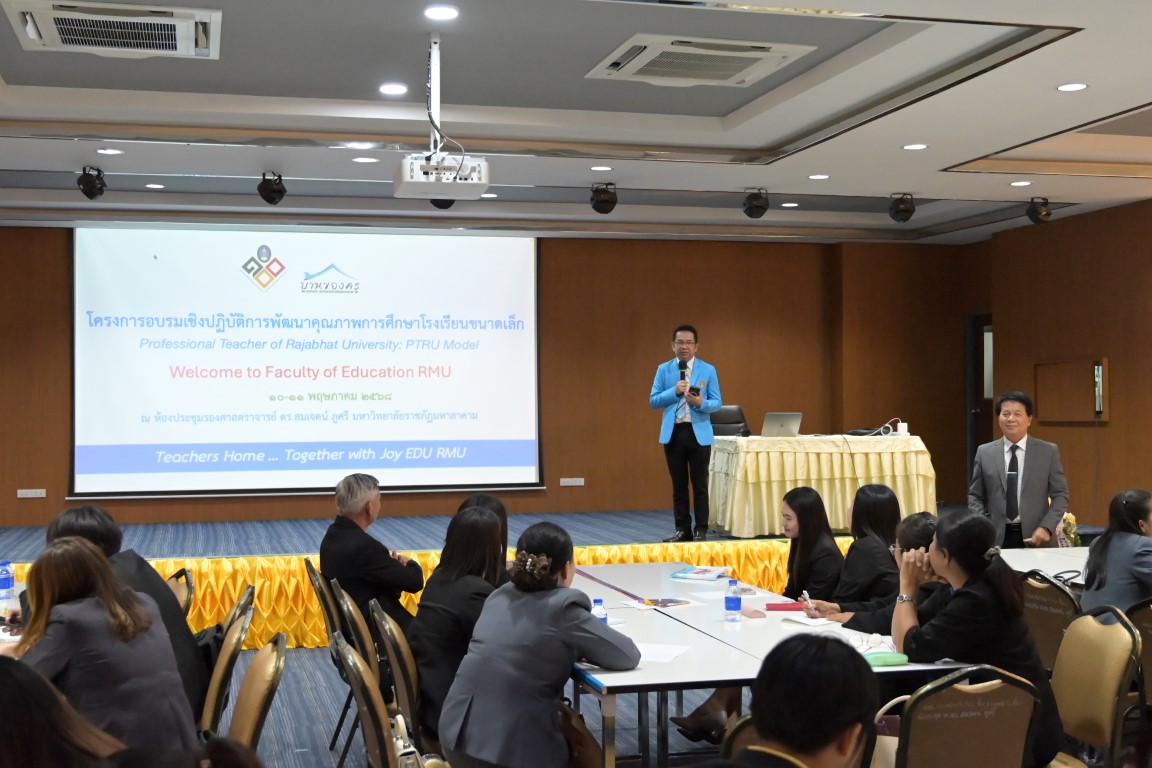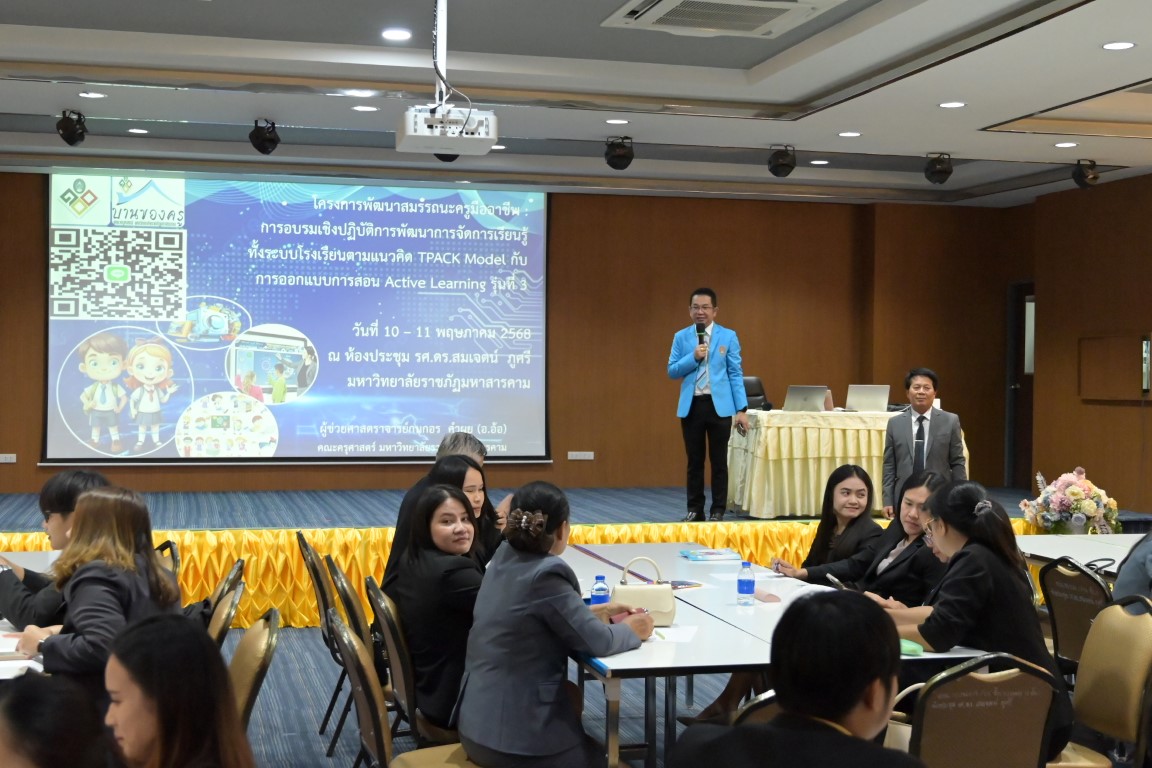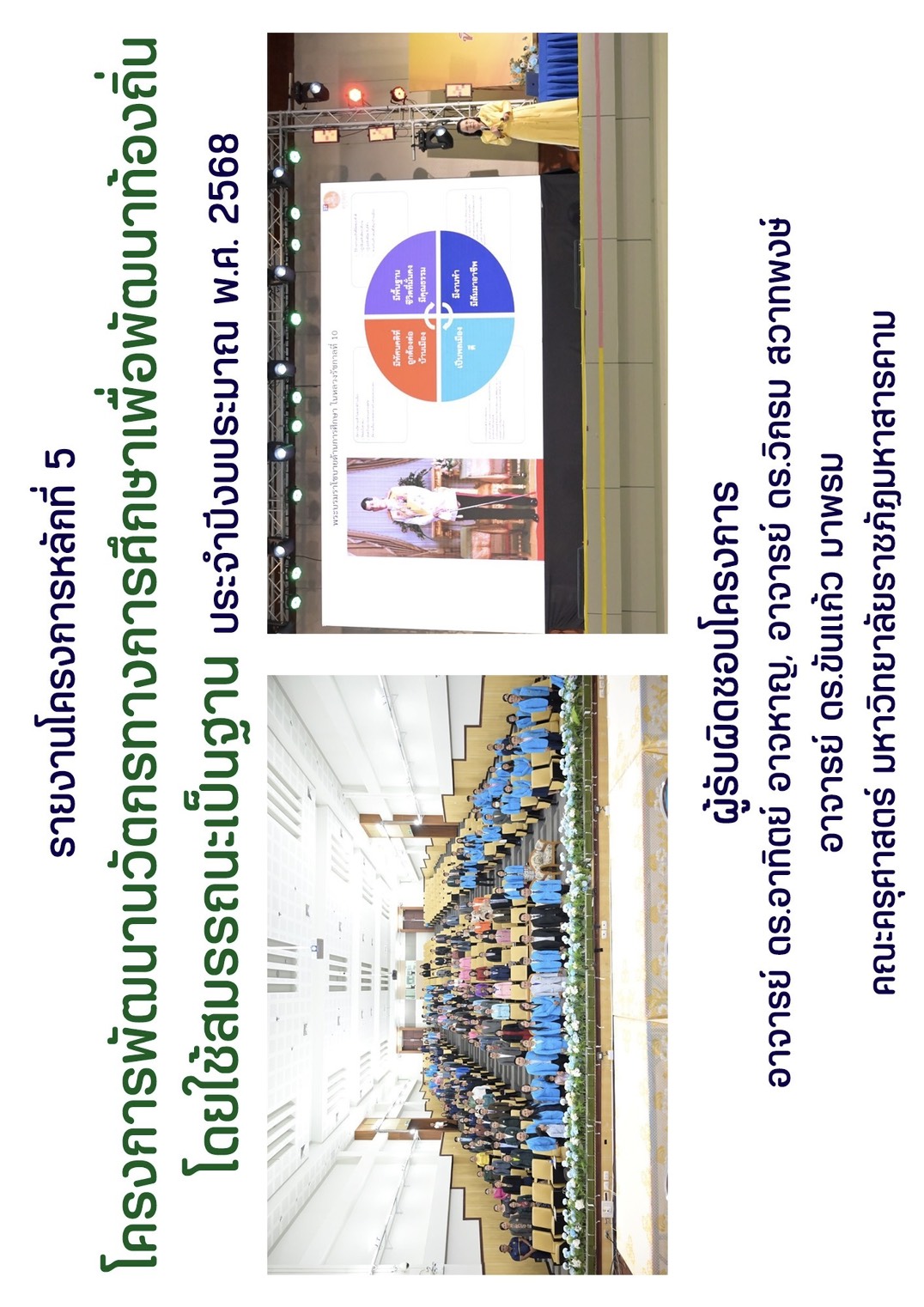
The Development of Social Innovators using Competency Base
ผู้รับผิดชอบ ให้ข้อมูล : Dr. Arthit Arthan
SDG ที่เกี่ยวข้อง
เป้าหมายย่อยความสอดคล้องกับยุทธศาสตร์มหาวิทยาลัย : การผลิตและพัฒนาครูมืออาชีพ
แหล่งงบประมาณ : งบประมาณแผ่นดิน
กลุ่มเป้าหมาย : ชุมชน
Project Implementation Area :
Manchasuksa School
Nachueak Phittayasans School
Srikosum Witthaya Mittraphap 209 School
Ban Kho Municipal School
Phayakkhaphum Witthayakharn School
Kalasin Phittayasap School
Samakkhi Witthaya Municipal School
Anukoolnaree School
Satri Si Suksa Roi Et School
Srisangwan Khon Kaen School
Satit Thesaban Si Sawat School ตำบล Kut Khao อำเภอ Mancha Khiri จังหวัด Khon Kaen 40160
Project Duration: March 24, 2025 – August 10, 2025
Objectives :
1.To develop partner schools for teacher training to participate in becoming educational innovators based on the PTRU Model.
2.To upskill, reskill, and renew the competencies of lecturers, administrators, teachers, educational personnel, supervisors, and students to become educational innovators and possess the qualities of Strong Teachers through the PTRU Model.
3.To develop teacher training schools as models for creating learning innovations that foster educational innovation and professional growth.
Activities :
Activity 1: Conduct a survey and analysis, and organize a workshop to develop the personnel of the Faculty of Education in implementing the PTRU Model for learning management.
Activity 2: Develop a training curriculum and an educational innovator development plan based on the PTRU Model, as well as improve teacher education courses.
Activity 3: Organize a workshop to enhance the competencies of teachers and educational personnel through Competency-Based Learning aligned with the PTRU Model, taking into account the local context and needs.
Activity 4: Implement Professional Learning Community (PLC) activities and promote teachers’ professional ethics to foster good citizenship, including Show and Share sessions and evaluation of project outcomes.
Number of project participants: 4950 people
Project Budget: 2,500,000 Baht
Results :
A total of 11 network schools for teacher training and basic education schools in the province participated in the project and adopted the development model to improve the competencies of in-service teachers, mentor teachers, and/or student teachers.
Administrators, in-service teachers, mentor teachers, educational personnel, and alumni from the teacher training network schools were re-skilled, up-skilled, and equipped with new skills to become educational innovators according to the competencies of the PTRU Model, achieving 90% participation.
In-service teachers, mentor teachers, and student teachers demonstrated the characteristics of Strong Teachers at a rate of 97.25%.
School administrators and educational administrators within the university’s service area participated in workshops and seminars to plan for the development of educational innovators based on the competency-based PTRU Model, reaching 94% participation.
Results society :
Economic Aspect
Promote the development of vocational skills and income generation in local communities by connecting educational knowledge with grassroots economic development.
Social Aspect
Foster collaboration among educators, communities, and local agencies to build social strength and sustainability.
Educational Aspect
Enhance the quality of teaching and learning in local areas by creating learning experiences that align with the local context and meet students’ needs.
Environmental Aspect
Support projects that promote the sustainable use of natural resources and the conservation of the local environment.
Participation :
1.Faculty members integrate content on teacher competencies into professional education courses.
2.Faculty of Education lecturers, mentor teachers, school administrators, program supervisors, and students collaborate to improve school education and develop both students and mentor teachers into professional educators through the PTRU Model.
Project continuity :
The development of educational innovators for local development, based on competency, consists of 17 competencies under the PTRU Model. The development process for undergraduate students spans four academic years; therefore, continuous development should be provided for both students and in-service teachers.
Problems obstacles :
1.After the training, teachers lacked sufficient educational equipment to apply the PTRU Model, especially in remote or rural areas with limited access to technology and facilities, which restricted the creation of educational innovations.
2.There was a lack of understanding and acceptance from local stakeholders. Some local personnel and community members did not fully understand or accept the implementation of the PTRU Model.
3.Teachers who participated in the project faced time constraints and heavy workloads.
4.Project evaluation and progress monitoring were challenging. Measuring success was difficult because educational innovation and its impact on the local community require a long period to show clear results.
5.The supported programs had no published academic or research articles, and the main project had not yet produced any publications.
Improvement :
1.Provide and develop essential resources to address shortages of learning materials and equipment by using accessible and locally appropriate educational media, as well as training teachers on how to apply these resources effectively.
2.Build understanding and collaboration with communities and stakeholders to promote awareness of the benefits and importance of the PTRU Model, emphasizing cooperation between local schools and communities for sustainable project development.
3.Adjust training schedules to match teachers’ workloads by designing flexible training programs that fit teachers’ school timetables, such as online training or activities held during convenient times.
4.Establish continuous monitoring and evaluation systems to clearly assess progress and make necessary adjustments to improve project implementation.
5.Strengthen collaboration with public and private sectors to address the lack of institutional support by engaging both sectors in providing funding, training, and other resources. Cooperation among universities, schools, and local agencies will enhance the project’s success and sustainability.
6.Encourage all academic staff to enhance their skills and knowledge to produce and publish academic or research articles.
Suggestions :
1.Develop flexible and diverse PTRU Model training plans that respond to the different needs of teachers in each area. Training should be offered in both online and in-person formats to increase accessibility and include varied content aligned with new teaching innovations.
2.Establish continuous teacher support systems by creating strong teacher networks, such as mentor groups or professional learning communities, to encourage knowledge exchange, experience sharing, and peer consultation that promote long-term collaborative learning.
3.Implement effective monitoring and evaluation mechanisms to regularly assess the project’s impact and success. The results should be used to improve project implementation and ensure continuous development.
4.Promote collaborative education with communities, local agencies, and other stakeholders by organizing joint activities or projects that address local educational needs and strengthen community involvement.
5.Raise public awareness of PTRU Model activities through outreach or public relations campaigns highlighting the importance of education and teacher development, encouraging greater community participation and support.
6.Integrate technology into learning processes by promoting the use of digital tools in teaching and learning—such as online media and learning platforms—to enhance access to essential knowledge and resources for both teachers and students
